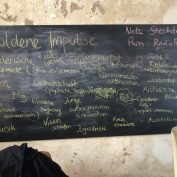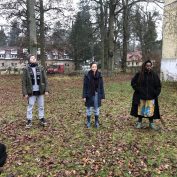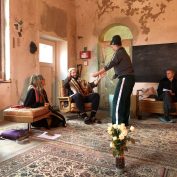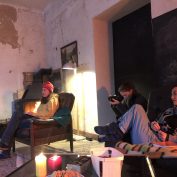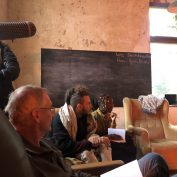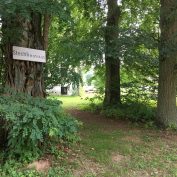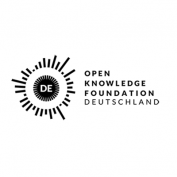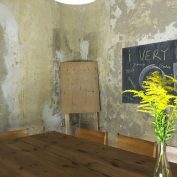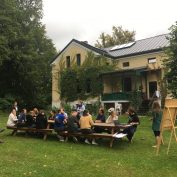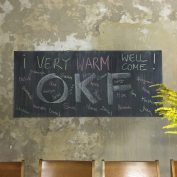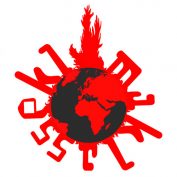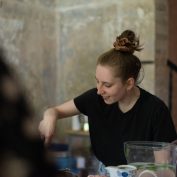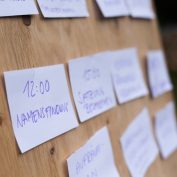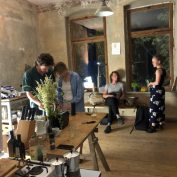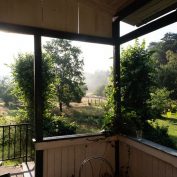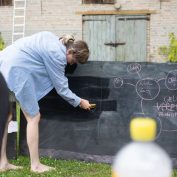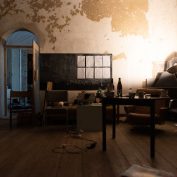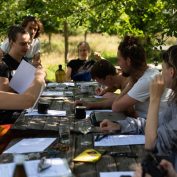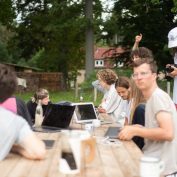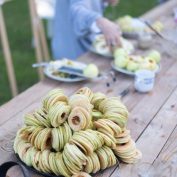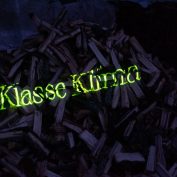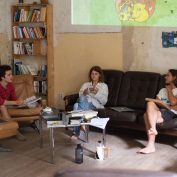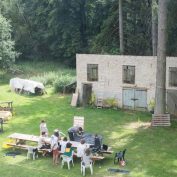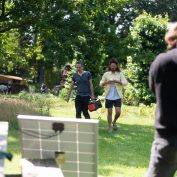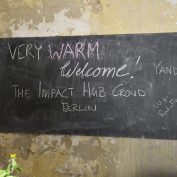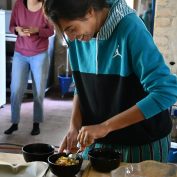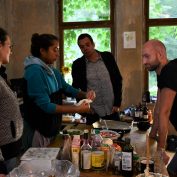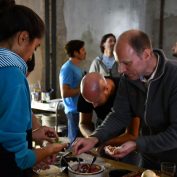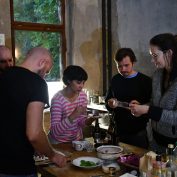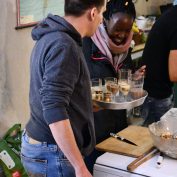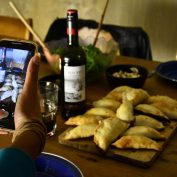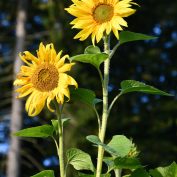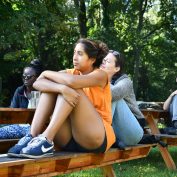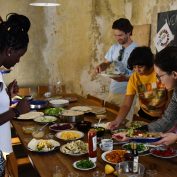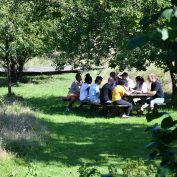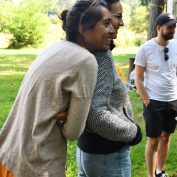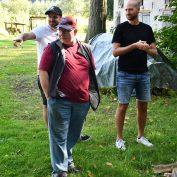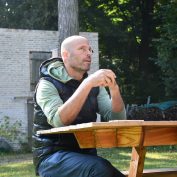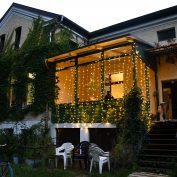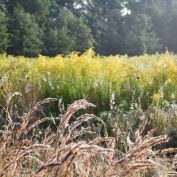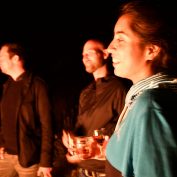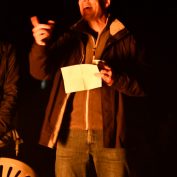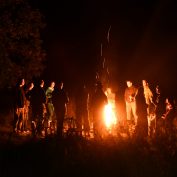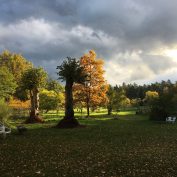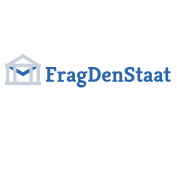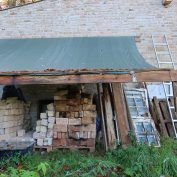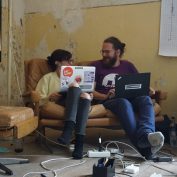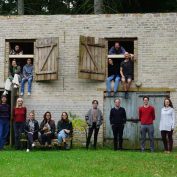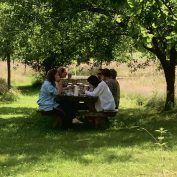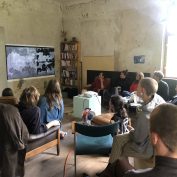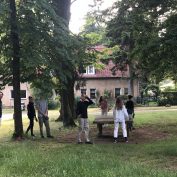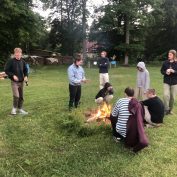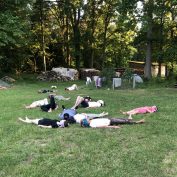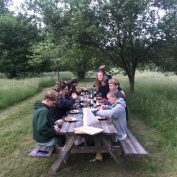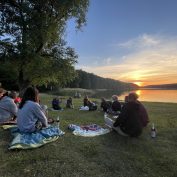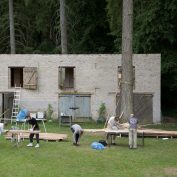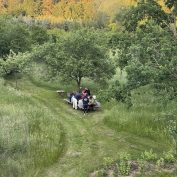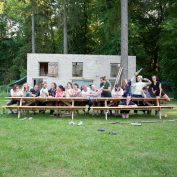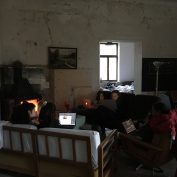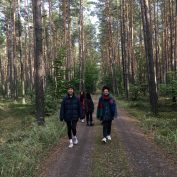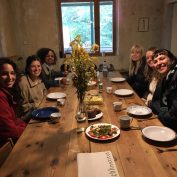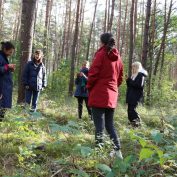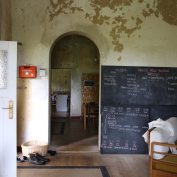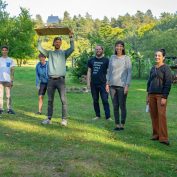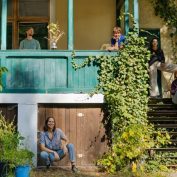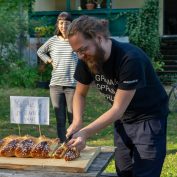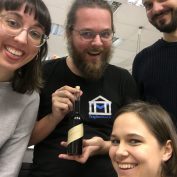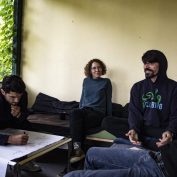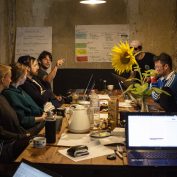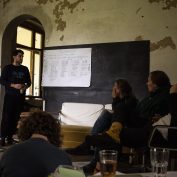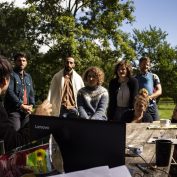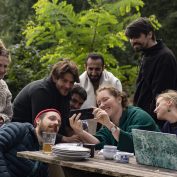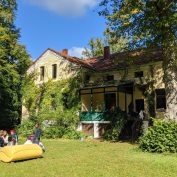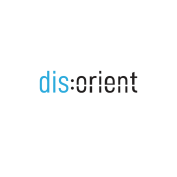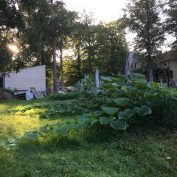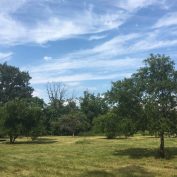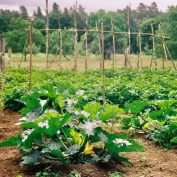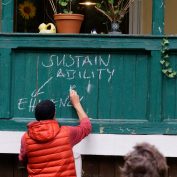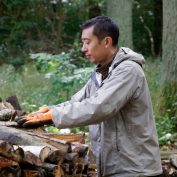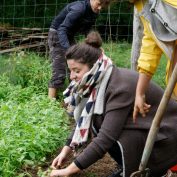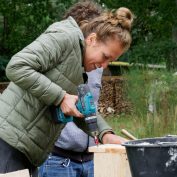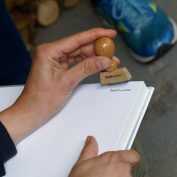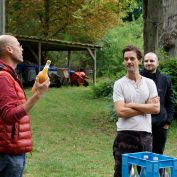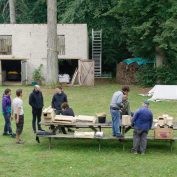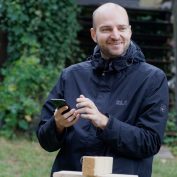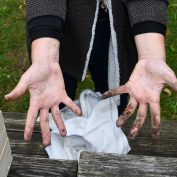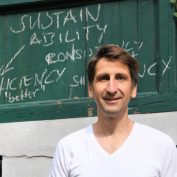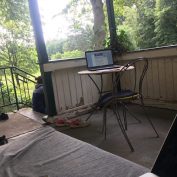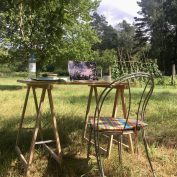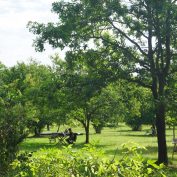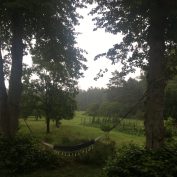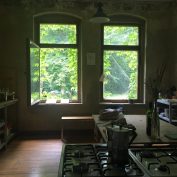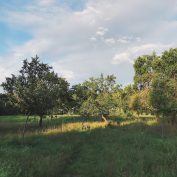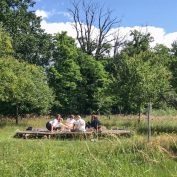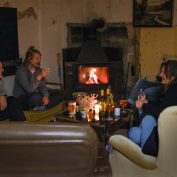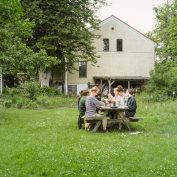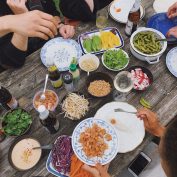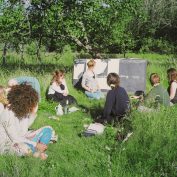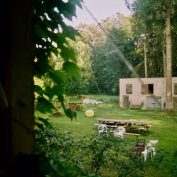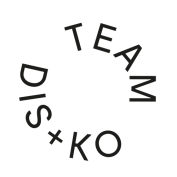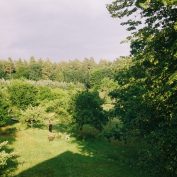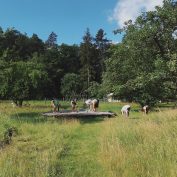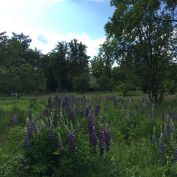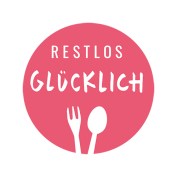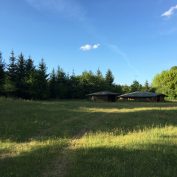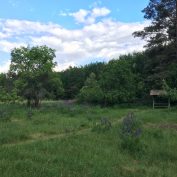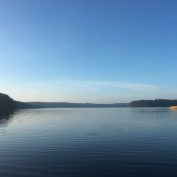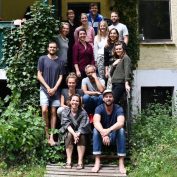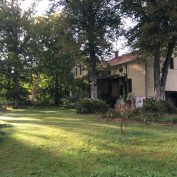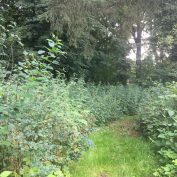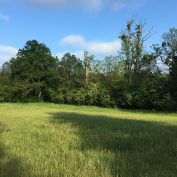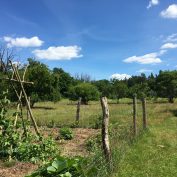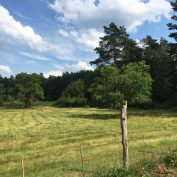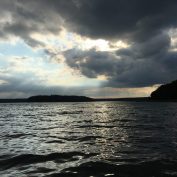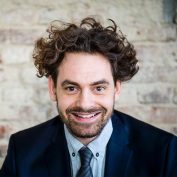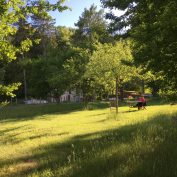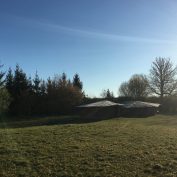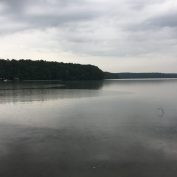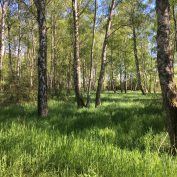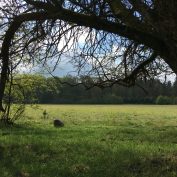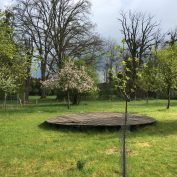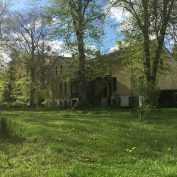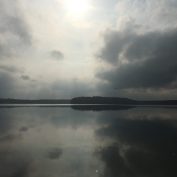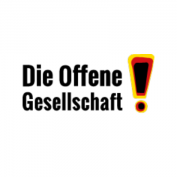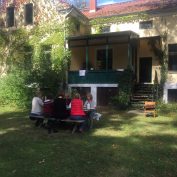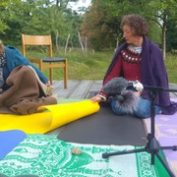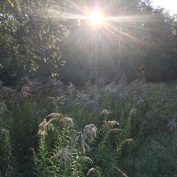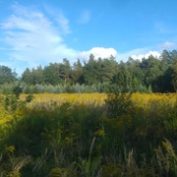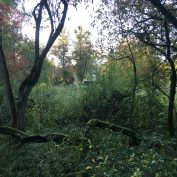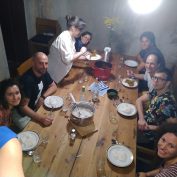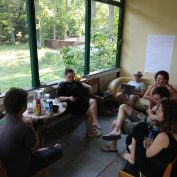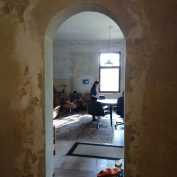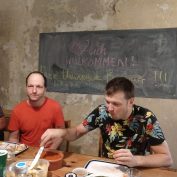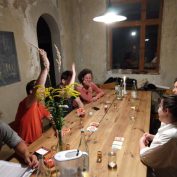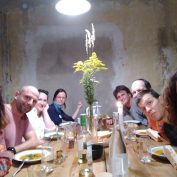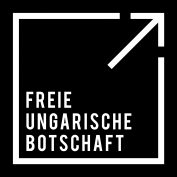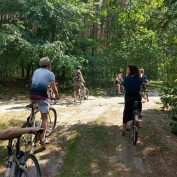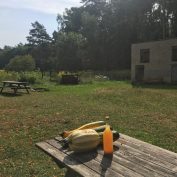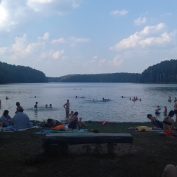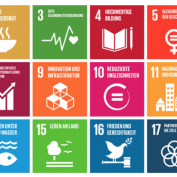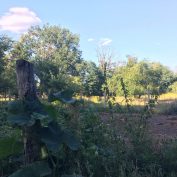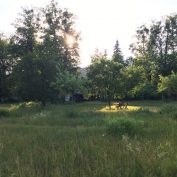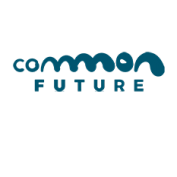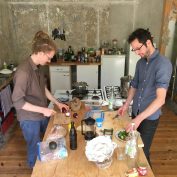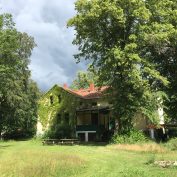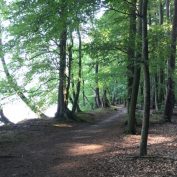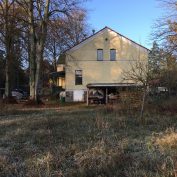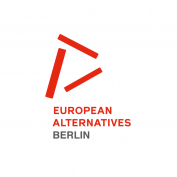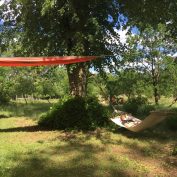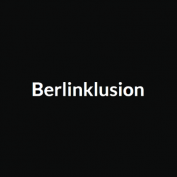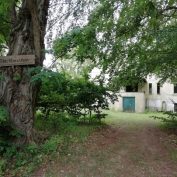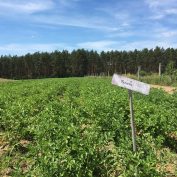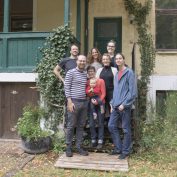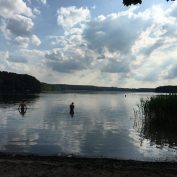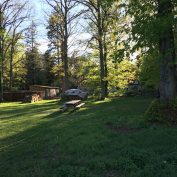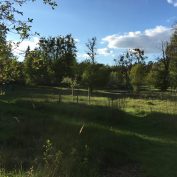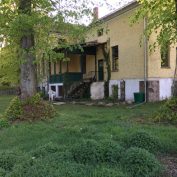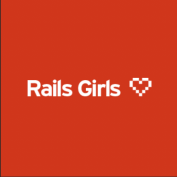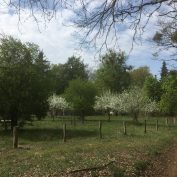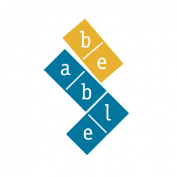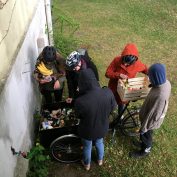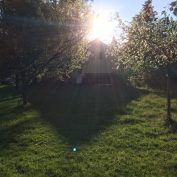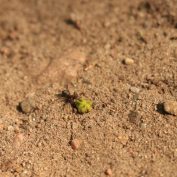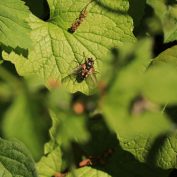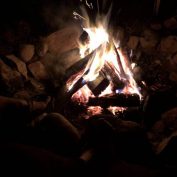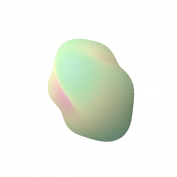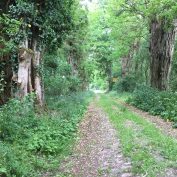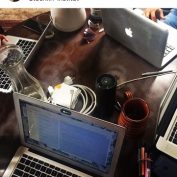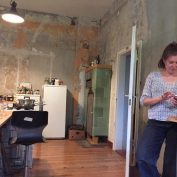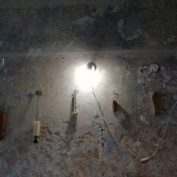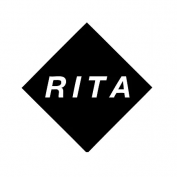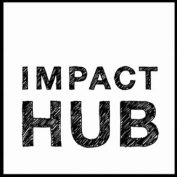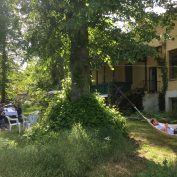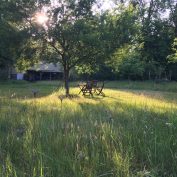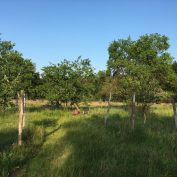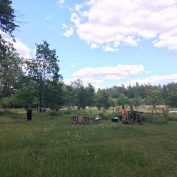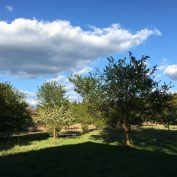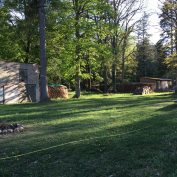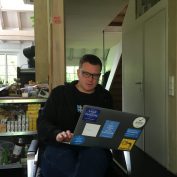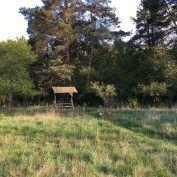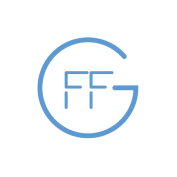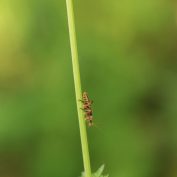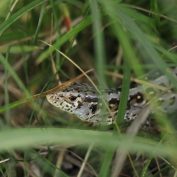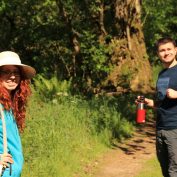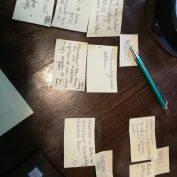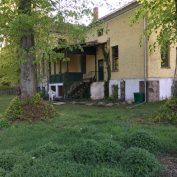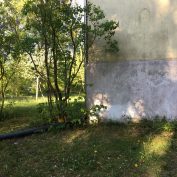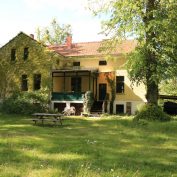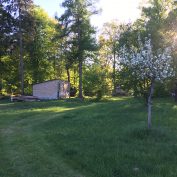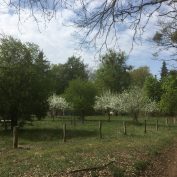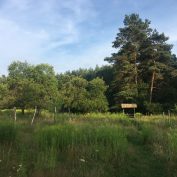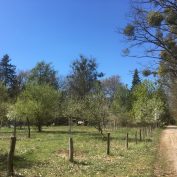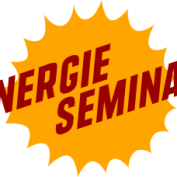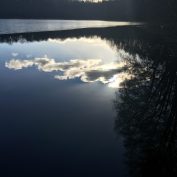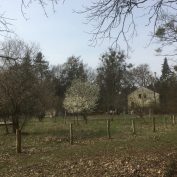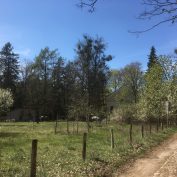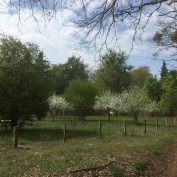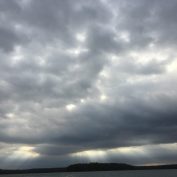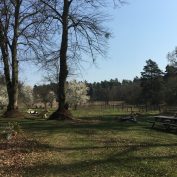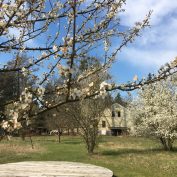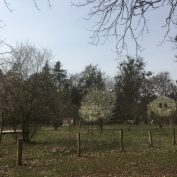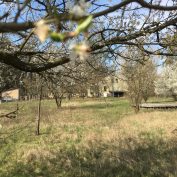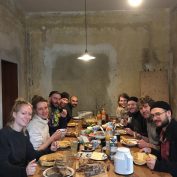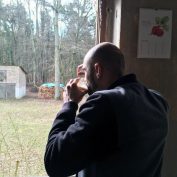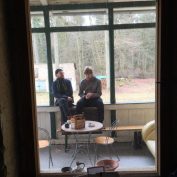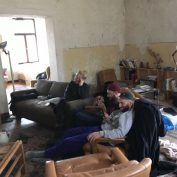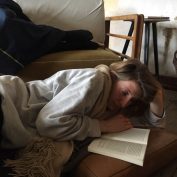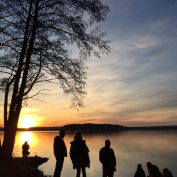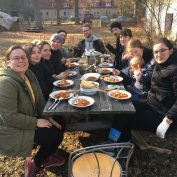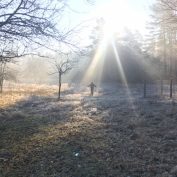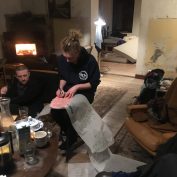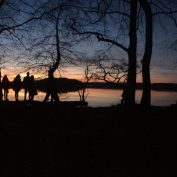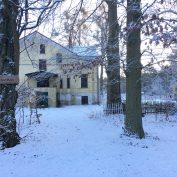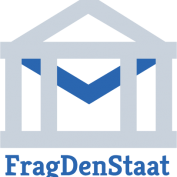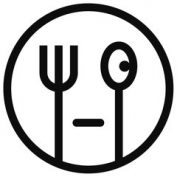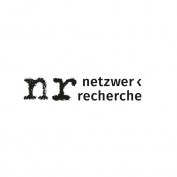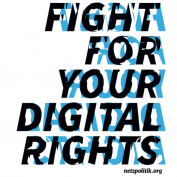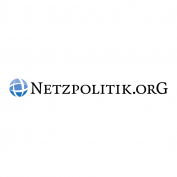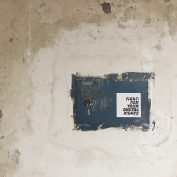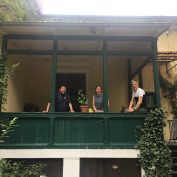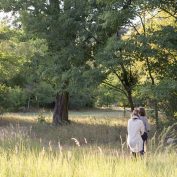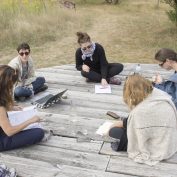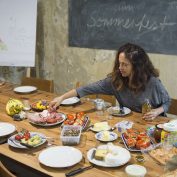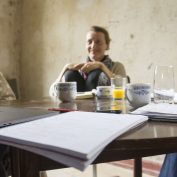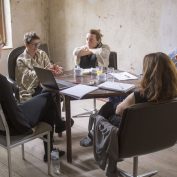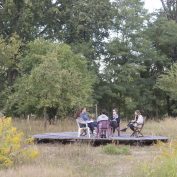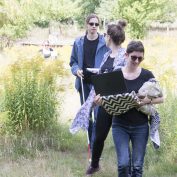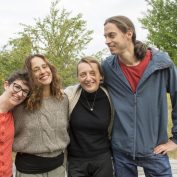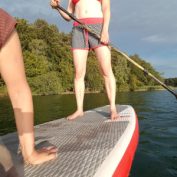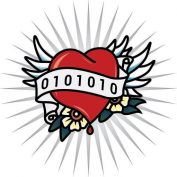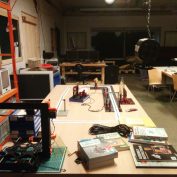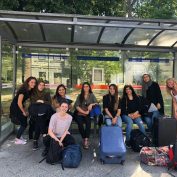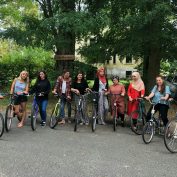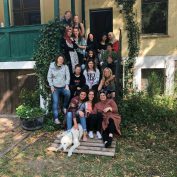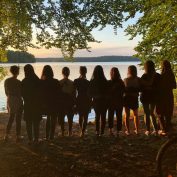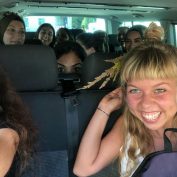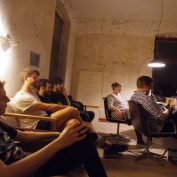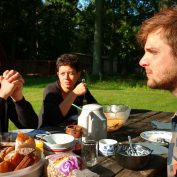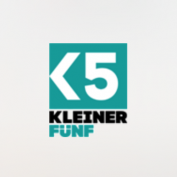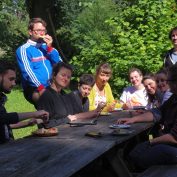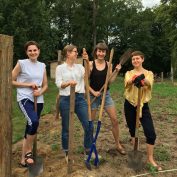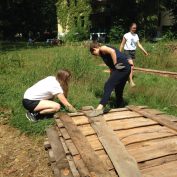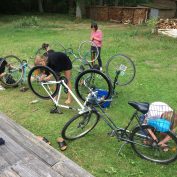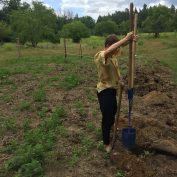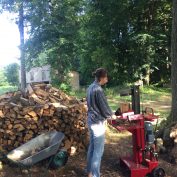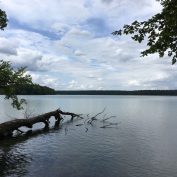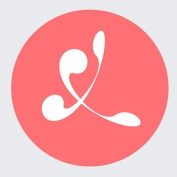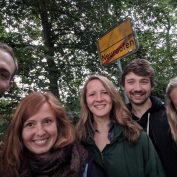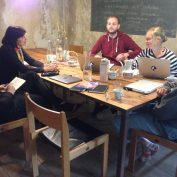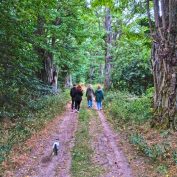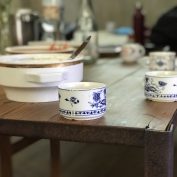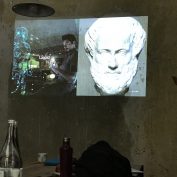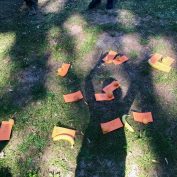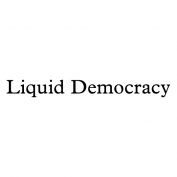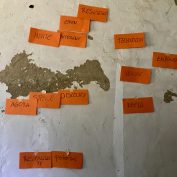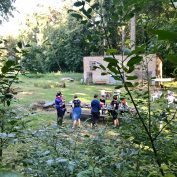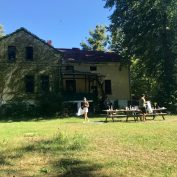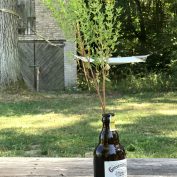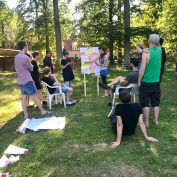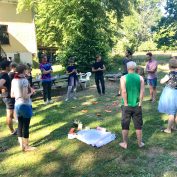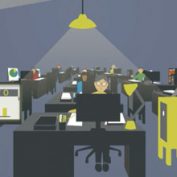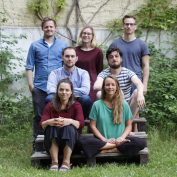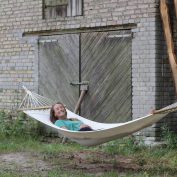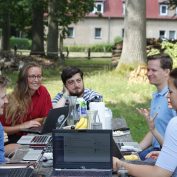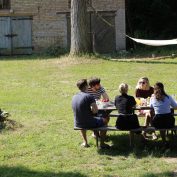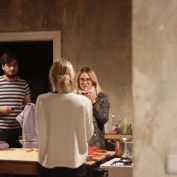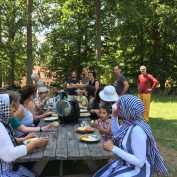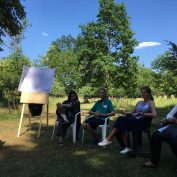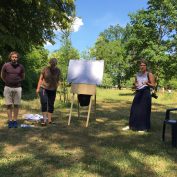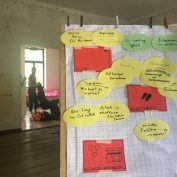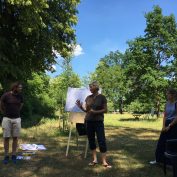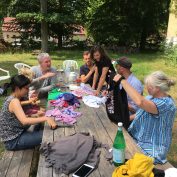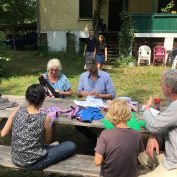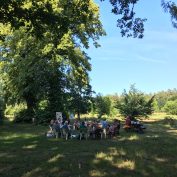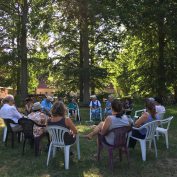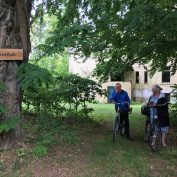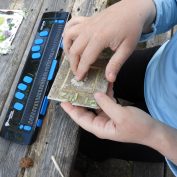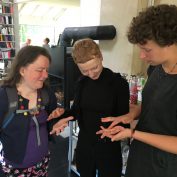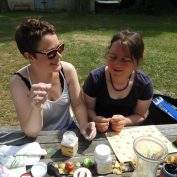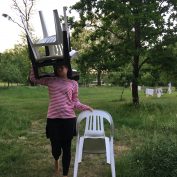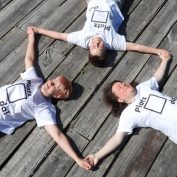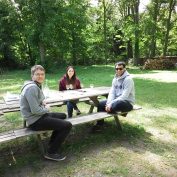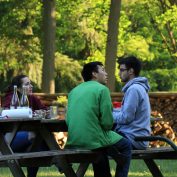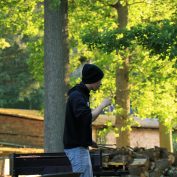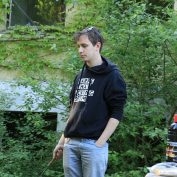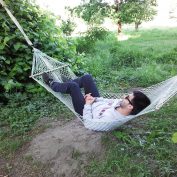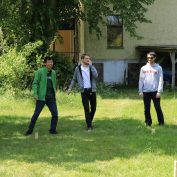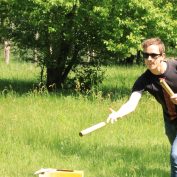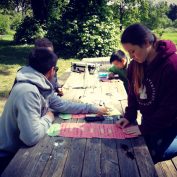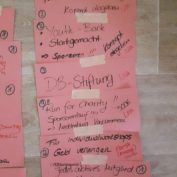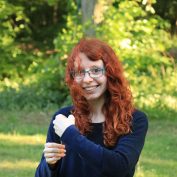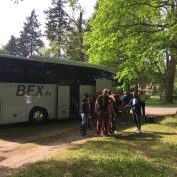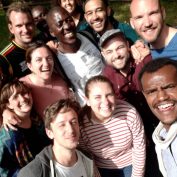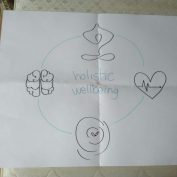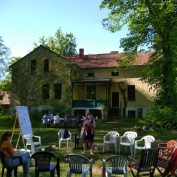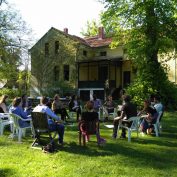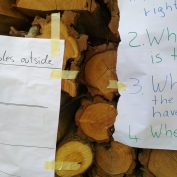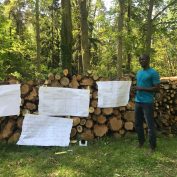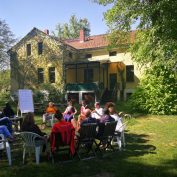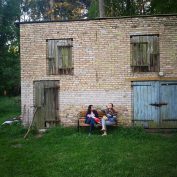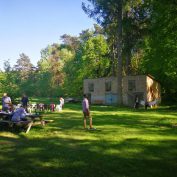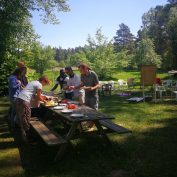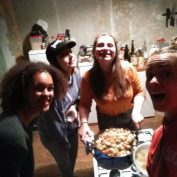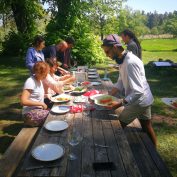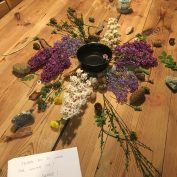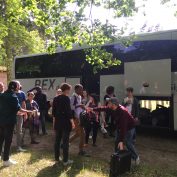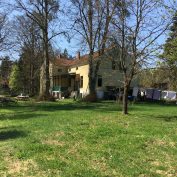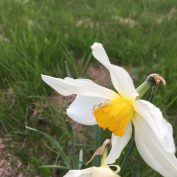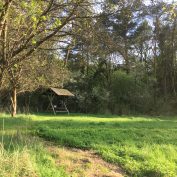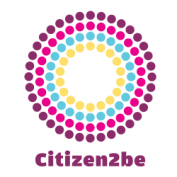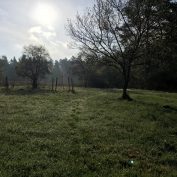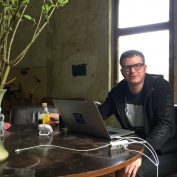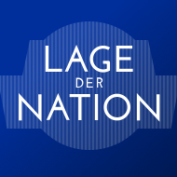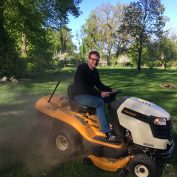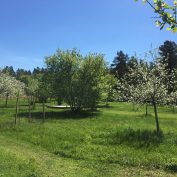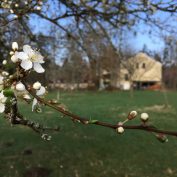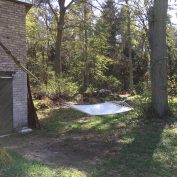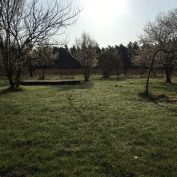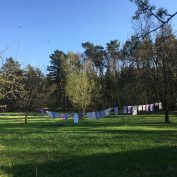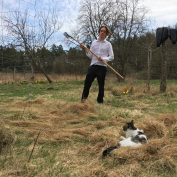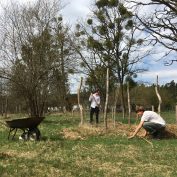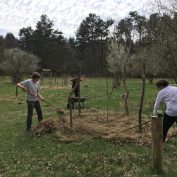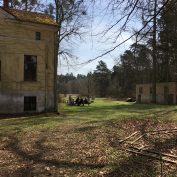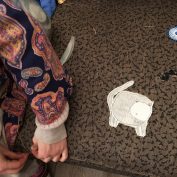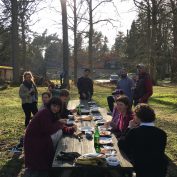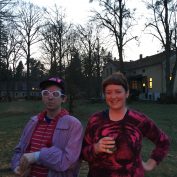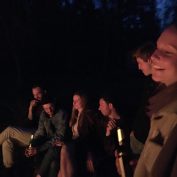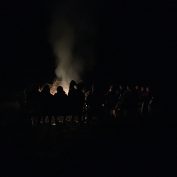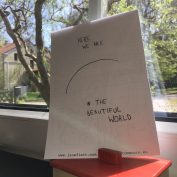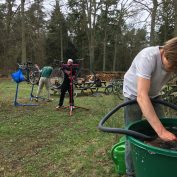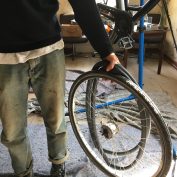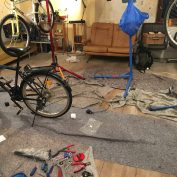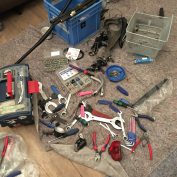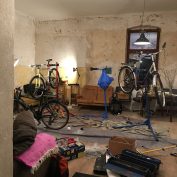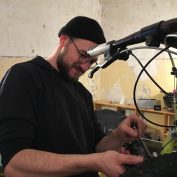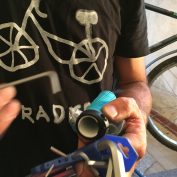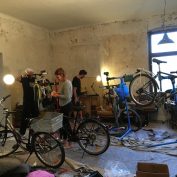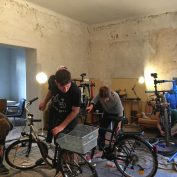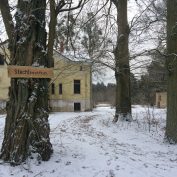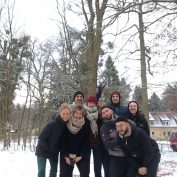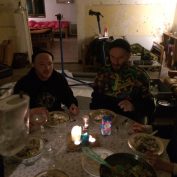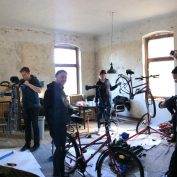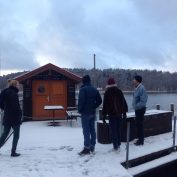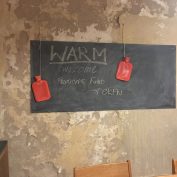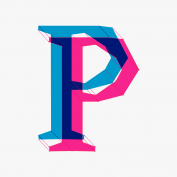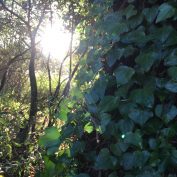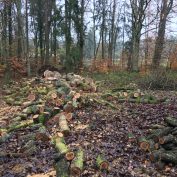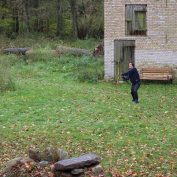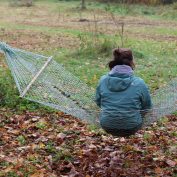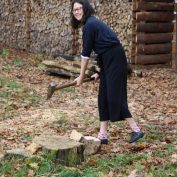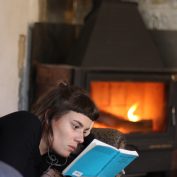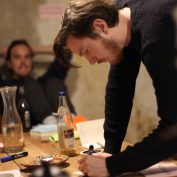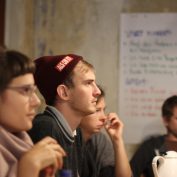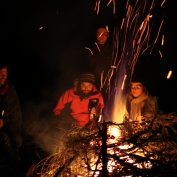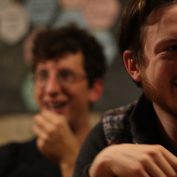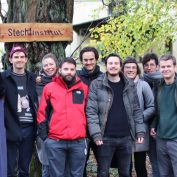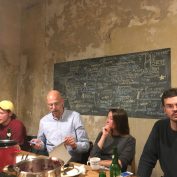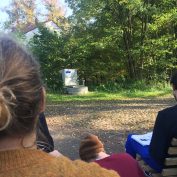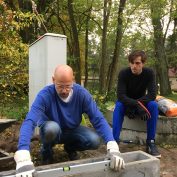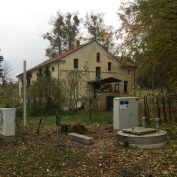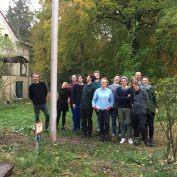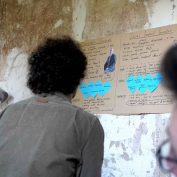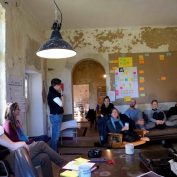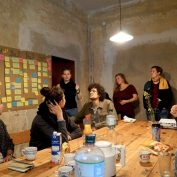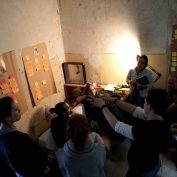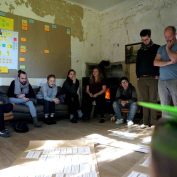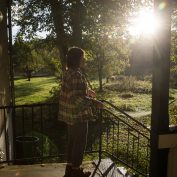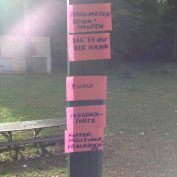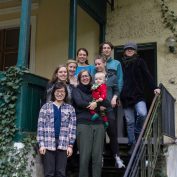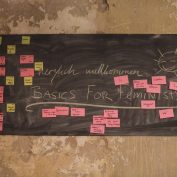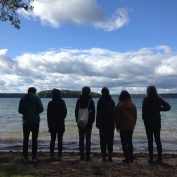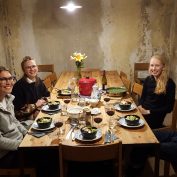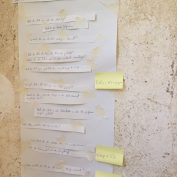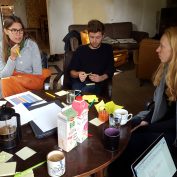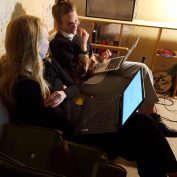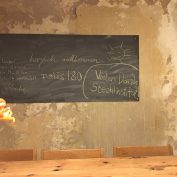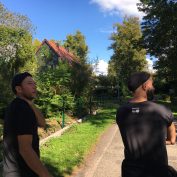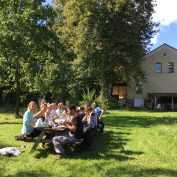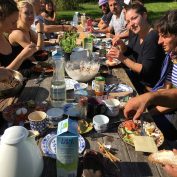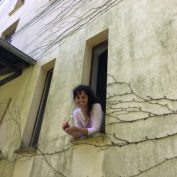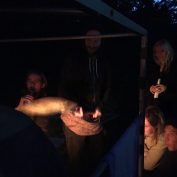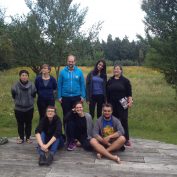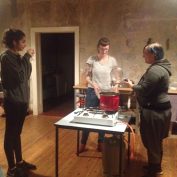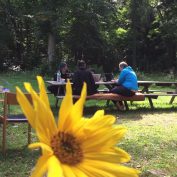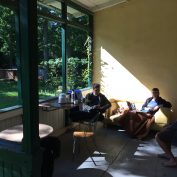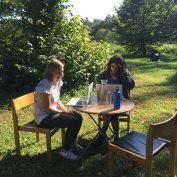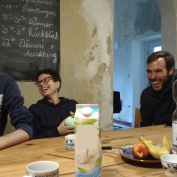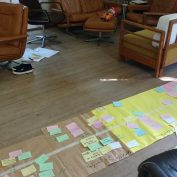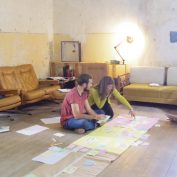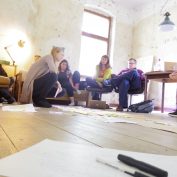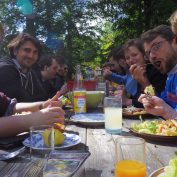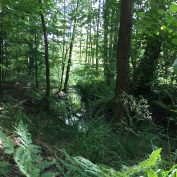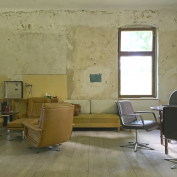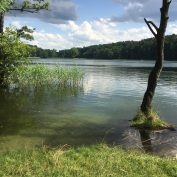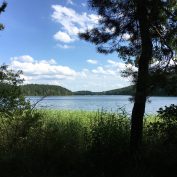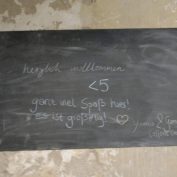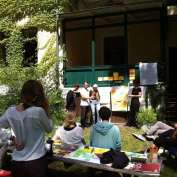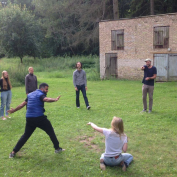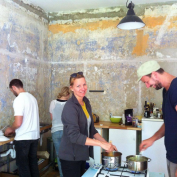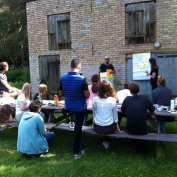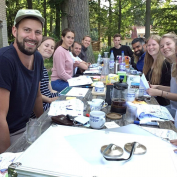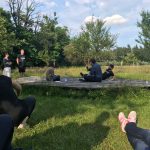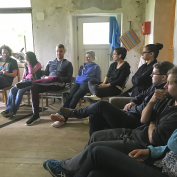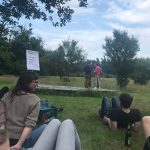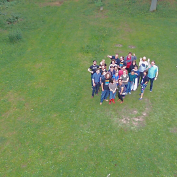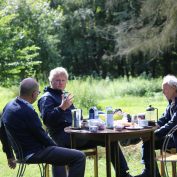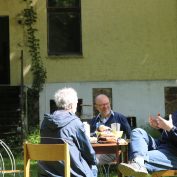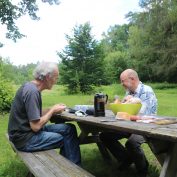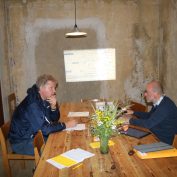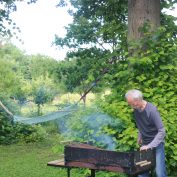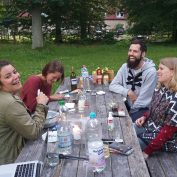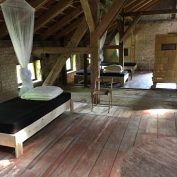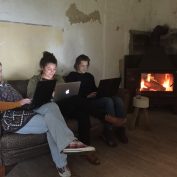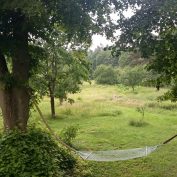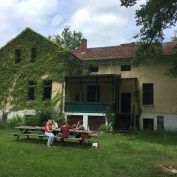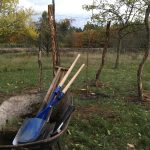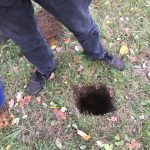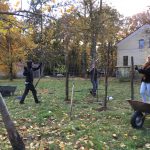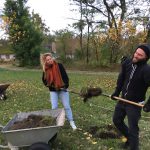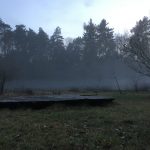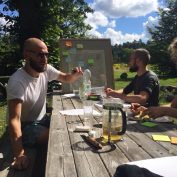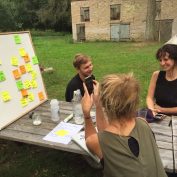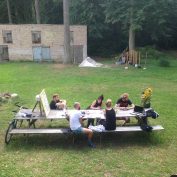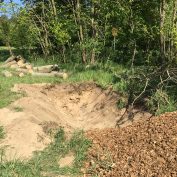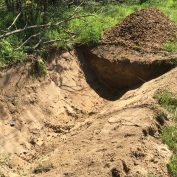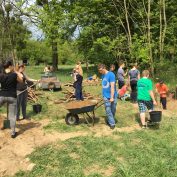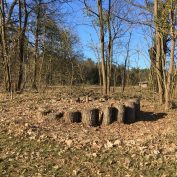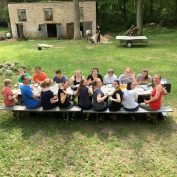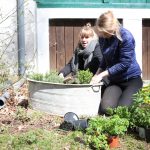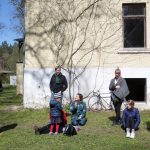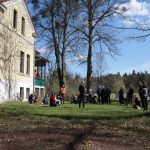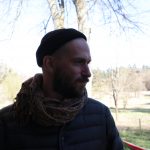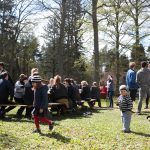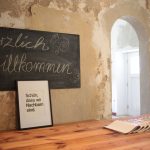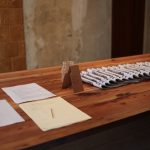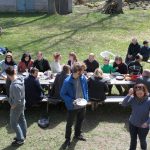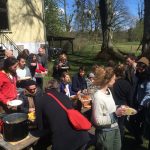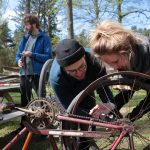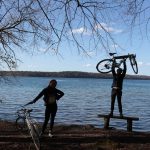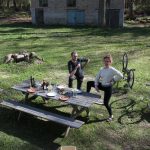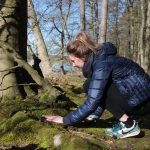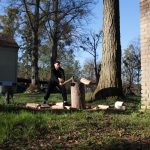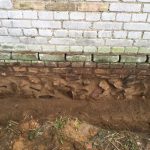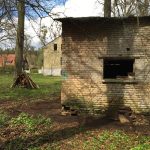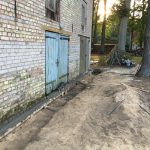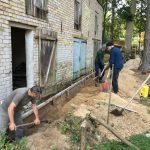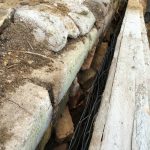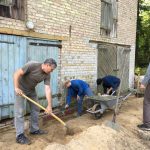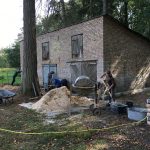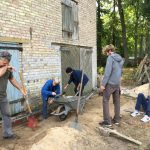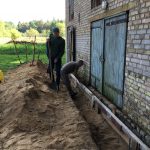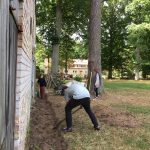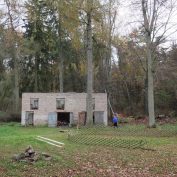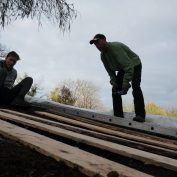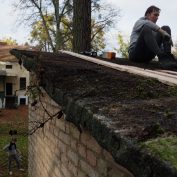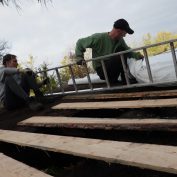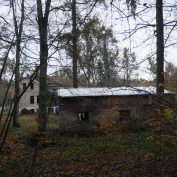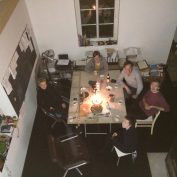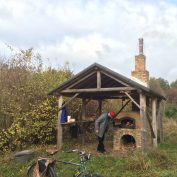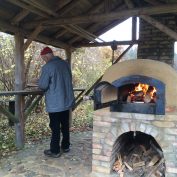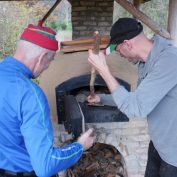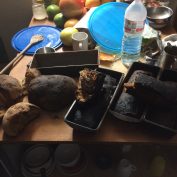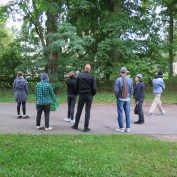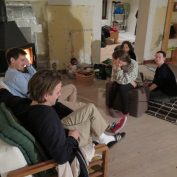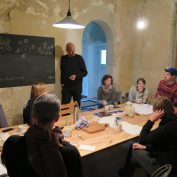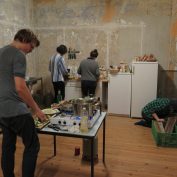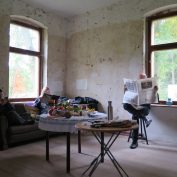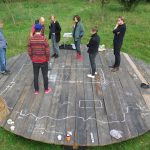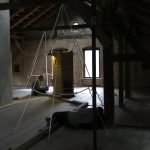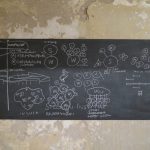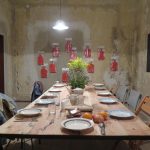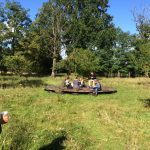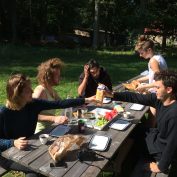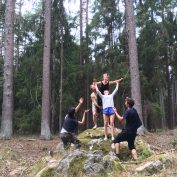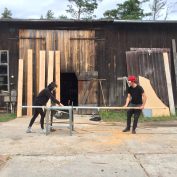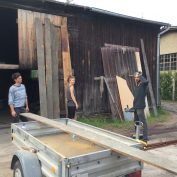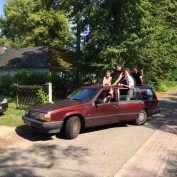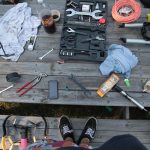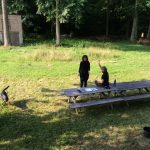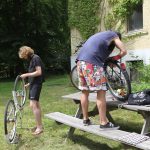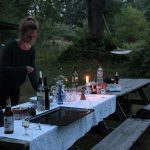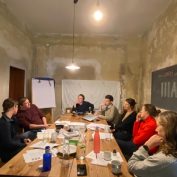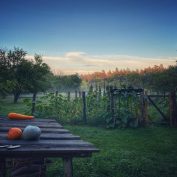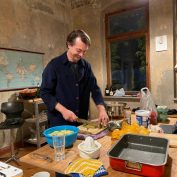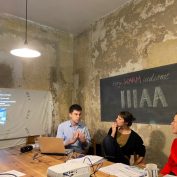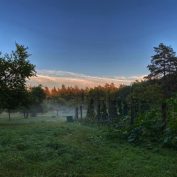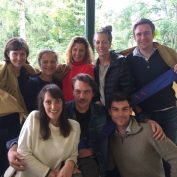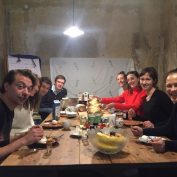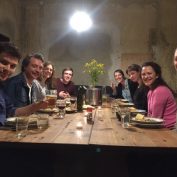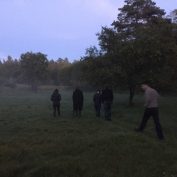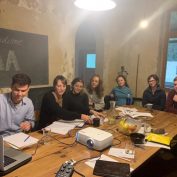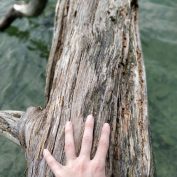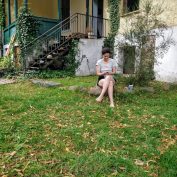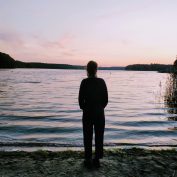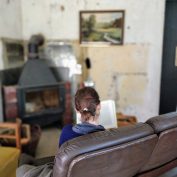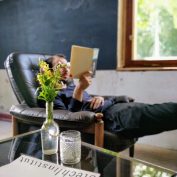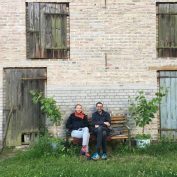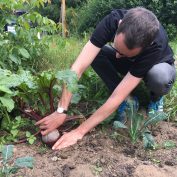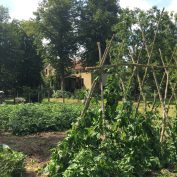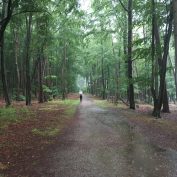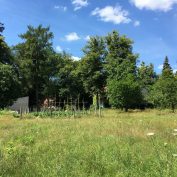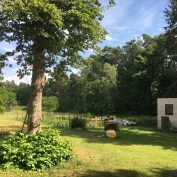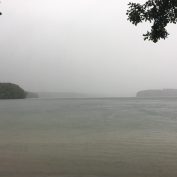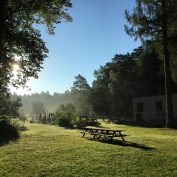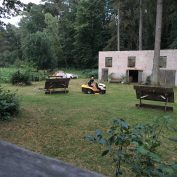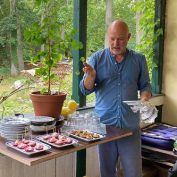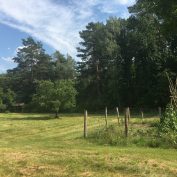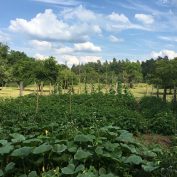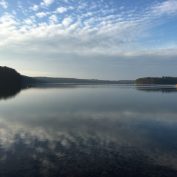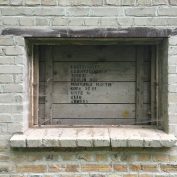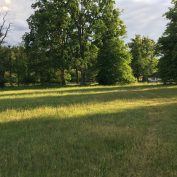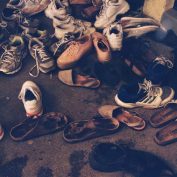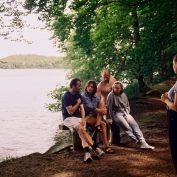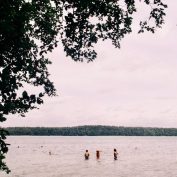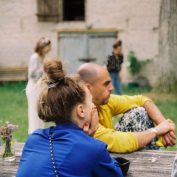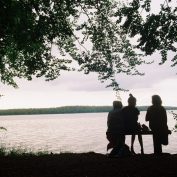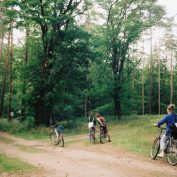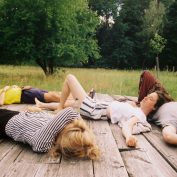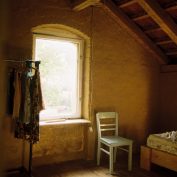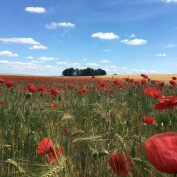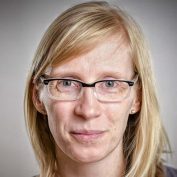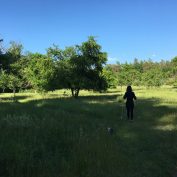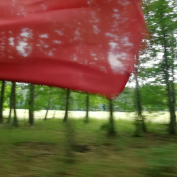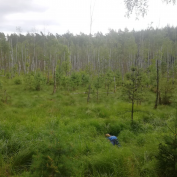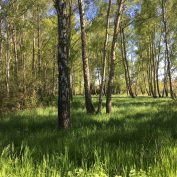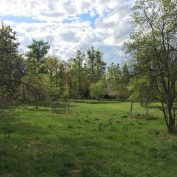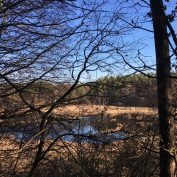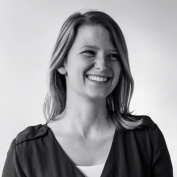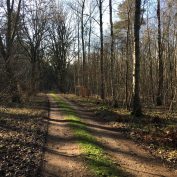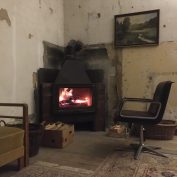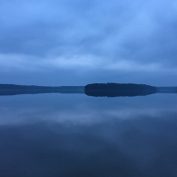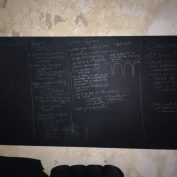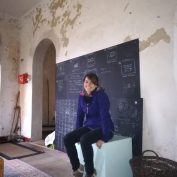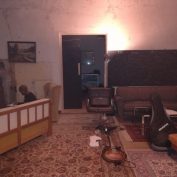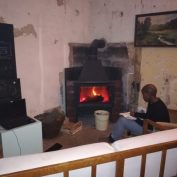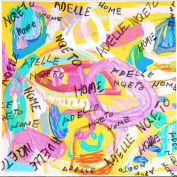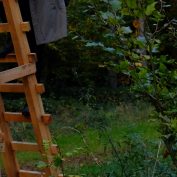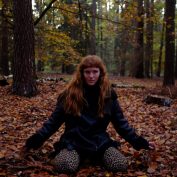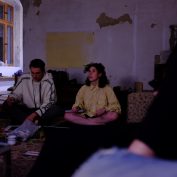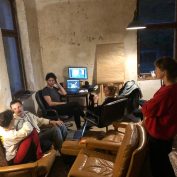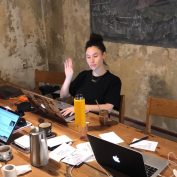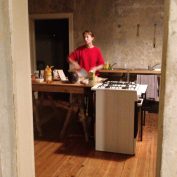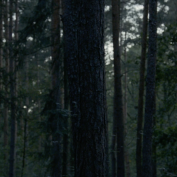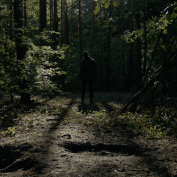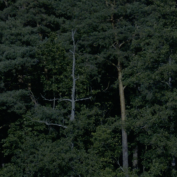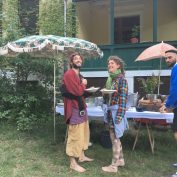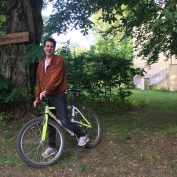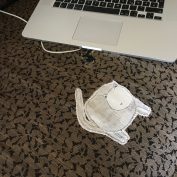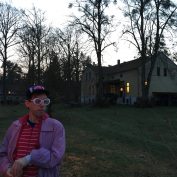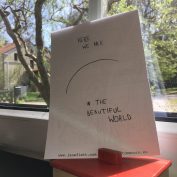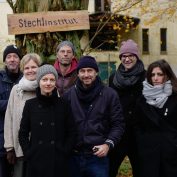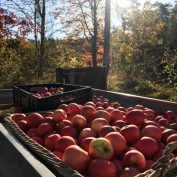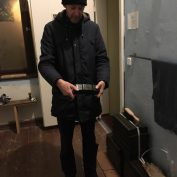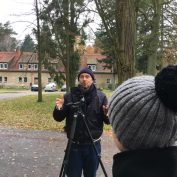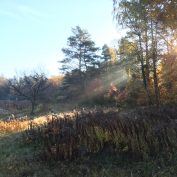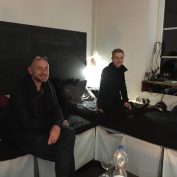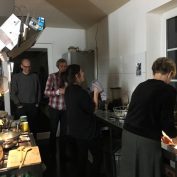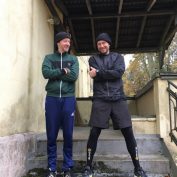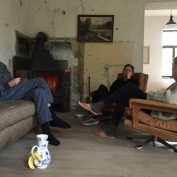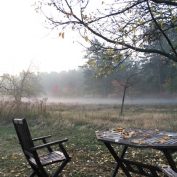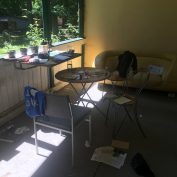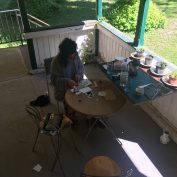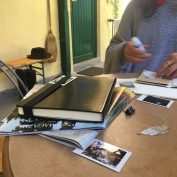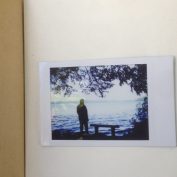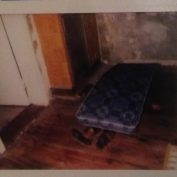idea
Devoted to all those committed to innovative thinking, dialogue and action. Socially involved groups as well as individual artists and activists can spend short periods here to experience genuine exchanges and encounters. As inhabitants of the house, they experience artistic thinking which is what renders the Stechlin-Institut and therefore conveys itself through it. Distanced from their daily lives, the transfer of this mindful way of living together empowers changes in perspective and encourages problem solving skills.
We understand the Stechlin-Institut to be a hybrid between an artwork crafted through everybody’s participation and a fantastic place serving to provide seclusion, relaxation, and exchange. For 3-10 days, they share time and space. It is important to us to connect people and support them in making their ideas come true. Like Cornelius Castoriadis, we are convinced of the creative imagination of humans as the inexhaustible “source and origin of otherness and perpetual self-alteration of a society.” And this, in fact, does not only concern artists. Artistic or oblique thinking is an emancipatory process. It doesn’t change that which is disturbing – it creates another perspective on it altogether.
During the warmer months of 2017-2020, the house in its initially rough aesthetics is open to non-profit-organisations, socially engaged people, and artists in the framework of the Stechlin-Dialoge. Between 2020 and 2021, it will be carefully rebuilt to an accessible shape, in order to become available all year around for the exchange and reflection between artists and social activists. People who take delight in collaborating on shaping reality in a sustainable and more and more beautiful way.
Initiatives
call
Stechlin-Dialoge
Short-term residencies for selected NGOs and artists at the Stechlin-Institut
The Stechlin-Institut is based on the experience of the power of artistic thinking and social commitment: rethinking things and questioning the supposedly immovable are necessary to shape the transformation of our society.
In the middle of the forest and near the Großer Stechlinsee, 80km north of Berlin, the former manor house Neu-Roofen is at our disposal. The house offers optimal conditions for a concentrated working stay, individually or with your team. It takes at least 2 days/nights to get up and down here.
It is a place for encounters, which is ideally suited to work on one’s own questions, to recharge energy reserves at the same time, to jump into the surrounding lakes and – thanks to low light pollution – to look deep into space. Once again this year, we invite you to work stays – and are looking forward to great encounters!
Who: Teams of non-profit organizations and charitable initiatives, social entrepreneurs, social activists; artists and artist groups who deal with the social potential of their work; In other words, people who have decided to be part of the solution and not the problem. You are welcome as teams or individuals. Overall, the house can comfortably accommodate up to 20 people, in summer up to 30.To maintain a concentrated working atmosphere for everyone; please no children and no dogs.
Where: At the Stechlin Institute, a good hour north of Berlin in the middle of the forest near Lake Stechlin; easy to reach by public transport and/or bicycle; Unfortunately, not yet barrier-free.
What: The house offers a mixture of rough aesthetics and meaningful pragmatism – sustainably implemented. Most rooms are large and open – there are hardly any single or double rooms. Equipped with an immense kitchen with wood and gas stove, a large table for eating and working, a fireplace room with a fat stove. Three bathrooms and up to 20 beds. Around the house there is a huge meadow and old trees provide shade.
The Wifi with broadband connection runs stable, mobile reception is, however, as often in Brandenburg, rather meager. Our hybrid box makes screenings, video meetings and presentations super easy. With room and clip-on microphones, webcam and its own power supply, which can also be charged with the sun, it can also be used on the meadow in conjunction with a mobile screen. If you prefer analogue: Many blackboards and flipchart stands are also there.
And for the surrounding area: The Berlin faradgang has made a bunch of bicycles afloat again for the institute – expect 10 functioning bikes plus a tandem!
So that you do without the car and to allow you a CO2 reduced and carefree journey by train and bicycle, we are happy to buy drinks (water, beer, soda) for you for little money.
How: We curate the initiatives that are coming. Simply download the registration form from our website stechlin-institut.org, fill it out and send it to us. Or you can contact us: info@stechlin-institut.org or 033082 40 29 73 and we will send you the form.
Admission: The Stechlin Institute is recognized as a work of art – that’s why we require entry for use.Your own contribution to the costs is currently 25 euros per person and day (+ 7% VAT). Attention: Conditions for cancellations can be found in the terms and conditions. Please bring your own bed linen (sheets, duvet cover, pillowcase) and towel for eco-reasons! Otherwise there is an incredible amount of laundry and of course we do not have a dryer. If it doesn’t work, you get the laundry for 11 € from us. (All + 7% VAT)
Liability of your registration: The SI is a place of idealists for idealists and it is calculated very tight. If you have to cancel or come with fewer people, others are taken their possibility to come. We would like you to consider this, otherwise this place is dead in no time. Please arrive in the registered number, otherwise the cancellation conditions will apply. As sorry as we are – but ultimately it is just fair for all the others who went out empty.
Resources: We live in disruptive times and ecosystem services have become precarious. Energy is scarce and water is precious in Brandenburg. Please handle these goods carefully. Within the scope of our possibilities, we have done what we can to make your stay as sustainable as possible. With your arrival via public transport / bicycle instead of car you can make a huge contribution yourself. (FYI: A km by car causes about 150g CO2, the same distance by train is about 32g CO2, by bike it is then 0g)
Last but not least. Cleaning: In order to make the house available to you as cheaply as possible in the future, the residents clean themselves, also because we think it is important that care work is not externalized. Please allow an hour for cleaning. Everyone who uses the house takes on some responsibility for ensuring that the Stechlin Institute remains a beautiful place – especially for others who come directly after you.
Providing this infrastructure takes a lot of love, time, sensitivity and patience. It would be great if you would encounter this place with the same mindfulness.
Stechlin-Dialoge 2022
INHALT
Stechlin-Dialoge 2021
Karuna e.V. Berlin Future for young people and children…According to studies and surveys, about twenty percent of all children and young people in Germany do not find access to the middle of our society and remain virtually sidelined. Poor school leaving certificates and a lack of vocational training are often the result. Some of these people already live as children of transfer payments, fall ill more often, have addiction problems and live in relative poverty. Self-respect through self-efficacy cannot develop in this way and is hardly promoted.
¶
Open Knowledge Foundation, We fight for open knowledge and democratic participation by developing technologies and tools that strengthen civil society.
¶
Klasse Klima UDK Students and teachers of the UdK Berlin have joined forces as an open, autonomous and interdisciplinary group. The aim is to politicize the university and its students, to translate the climate crisis into teaching and design practice, and to bring the UdK Berlin as an institution to a public positioning. Full-day seminars form the framework for experiments and real-world laboratories. The Climate class focuses on educational opportunities, cooperation projects and commitment to higher education policy.
¶
ImpactHub sxp 2021 Impact Hub Berlin is part of the global Impact Hub network, which consists of over 100 local communities of changemakers. What unites us is our belief that social entrepreneurship can change the world for the better – because socially, environmentally and financially sustainable companies can shape a fairer future for people and our planet. We also believe that people like you and we can achieve more as part of a community than if we work in isolation from each other. Trust, courage and cooperation will help us to shape a diverse, inclusive and ecological future.
¶
Frag den Staat We bring light into the darkness of the authorities
Every person has the right to information from politics and administration. FragDenStaat helps you enforce your right.
¶
studio raumproduktion 21 | 02: Spaces of Learning. The non-institutional school in rural areas, extension of the Stechlin Institute, Brandenburg Especially in today’s world, learning and the creative design of one’s own environment take place mainly in non-institutional places. The various participants contribute a wide range of expertise from their own practice and actively question the institutionally existing duality between teachers and students. In these places, knowledge without administrative structures and hierarchical organizations is generated situationally and through relationships.
¶
Stechlin-Dialoge 2020
Studiospaces of Solidarity The current situation with the covid19 pandemic is challenging physical contact and bringing new spatial manifestation of caring for each other and practicing distance. Between April and October 2020 the University of the Arts Berlin, Chair for Design and Building Planning, hosted the design studio „Spaces of Solidarity“. Six mapping and video projects, analyse and speculate about possible futures of spaces beyond the binaries of private and public.
¶
Frag den Staat
Since 2011, FragDenStaat has been fighting for freedom of information in Germany. We are convinced that a strong democracy needs an informed and active civil society that can speak at eye level with politics and administration. It should be socially established and taken for granted that official information can be easily obtained and used. Only in this way can government action be effectively monitored.
¶
dis:orient We are an independent collective of journalists, scholars, and activists who engage with the countries of West Asia and North Africa in various ways. Founded in 2005 as the blog „Alsharq“, in 2013 it developed into an association for political education work, which now has more than 100 members. The travel company Alsharq REISE also has its point of origin in the Alsharq project.
¶
Impact Hub + sustainabilityexperienceprogram is aimed at companies and organizations for which the program makes sustainability practically comprehensible and alive in the dimensions of efficiency, coherence and sufficiency.
¶
DoktorantINNEN Schreibretreat
¶
- © Isabelle Bertolone
Team Dis+Ko We demand discourse and cooperation and have dared the experiment of a collective master thesis together at TU Berlin in 2019. We are united by a passion for experimentation and self-organization, urban politics and the fun of architecture, sustainability and rethinking conventions, storytelling and learning, drawing and building together.
¶
RESTLOS GLÜCKLICH e.V. is a non-profit association RESTLOS GLÜCKLICH which is committed to more appreciation and conscious consumption of food. We perform educational work in projects, in our participatory actions and in individual workshops. We sensitize children and adults for a more sustainable use of food in the kitchen and thus actively campaign against food waste.
¶
Impact Hub Berlin is the home of social entrepreneurship in the German capital. We are a catalyst for social innovation. We are a community and consultancy and work together in our Creative Space.
¶
- by Peter van Heesen
Gesellschaft im Wandel is a non-profit business corporation that I founded as a social activist and entrepreneur. GiW (gUG) addresses the inevitable change in our society and aims to contribute to social discourse through innovative and constructive projects.
¶
Diskutier mit mir is a non-profit association whose mission is to strengthen democratic discourse in Germany and Europe with the help of digital discussion tools. The principle of Diskutier Mit Mir is to create protected digital spaces and bring people with opposing political views into dialogue.
¶
¶
Stechlin-Dialoge 2019
Salonières: Ten women from arts and culture in Berlin took three days off to splurge on cooking, thinking, talking, and making, and they donated a set of art mediation books to our library in the context of transformation literature, and some – still clever – specialist literature. Marvellous.
¶
Freie Ungarische Botschaft. We are a group of European citizens from Berlin of mostly Hungarian descent. We believe that it is about time that EU institutions and decision makers actively face the anti-democratic efforts of the autocratic Hungarian government in order to defend the common future of the European Union.
¶
Common Future unites people from various disciplines. We work in science, educational work, and we are politically and artistically active. This way, our projects are developed under the influence of different knowledges, methods, and experiences. Large part of our team works on a voluntary basis while projects are led by full time staff.
¶
European Alternatives is a transnational civil society organisation and citizen movement promoting democracy, equality, and culture beyond the nation state.
We act in the belief that the most urgent political, cultural and social challenges of our time can no longer be understood or dealt with at the national level. At the same time, existing forms of technocratic global and European governance are neither democratic, just, nor fair. New forms of transnational collectivity must be fostered to give citizens democratic control over their future.
¶
Berlinklusion uses an expanded notion of ‚disability‘ and follows the social model of disability. This means, instead of defining a person by their health situation or an impairment, we look at disability as the result of a social construction, because people are impaired through barriers. We accept and respect that disability is defined by each individual person and through their lived experiences. When we’re speaking of inclusion and accessibility, we are addressing these values for all people, no matter how they identify: as disabled or impaired in a sensory, physical, or cognitive sense, with learning difficulties, mental health problems, differently gifted, diverse, ‚crippled‘, ‚insane‘, …
¶
Ruby e.V. is a charitable association devoted to the support and education regarding the programming language Ruby. By now, the association has grown beyond Berlin and has members and events across Germany, so in terms of Berlin the only thing left is the name. Everybody involved does so on a voluntary basis. Concerning tax, insurance, and judicial questions, the association requires external help. Therefore, the association has barely any admin costs.
¶
Inclusion and design – be able combines these two areas through an innovative working process. We realize educational formats and projects where we communaly design an inclusive future with marginalized groups and other social stakeholders. In our work, we sensitize about the topic of inclusion and we contribute to reducing fear of contact, mutual prejudice, and insecurities.
¶
Lightcurve is a leading blockchain development studio based in Berlin with over 50 employees. Our team sets the industry standard through high quality code and output within the industry. For over two years, we have been focused on building Lisk, a blockchain application platform. Our work involves researching state-of-the-art cryptography, developing consensus protocols and designing intuitive user interfaces.
¶
Our vision is a democratic culture where participation is taken for granted by everyone. Liquid Democracy is an innovative concept for liquifying rigid structures which limit our democracy. And Liquid Democracy is us: an organisation dedicated to developing and applying this idea further. We ponder every day how democratic processses can be improved on small and large scales. Better yet, this means to us: how they can become more participatory, more transparent, and more equal.
¶
Kollektiv RITA, a theatre collective from Zurich/Berlin – an artistic collaboration of Sabrina Bosshard, Clara Dobbertin, Daniela Guse and Marie Hartung.
¶
Impact Hub, founded 2005 in London, is a global network which makes it possible for small companies and freelancers to work in a collective, creatively furnished office space and to network with each other.
¶
Demokratie & Dialog came back for a summer retreat…
¶
Ulf Burmeyer has become a regular at the Stechlin-Institut. He is the head of the Gesellschaft für Freiheitsrechte and also a podcaster (Lage der Nation with Philip Banse), and on top of that he is our good spirit who has sped up our wifi. Thanks to all the access points he’s distributed across the house it has become persistent and reliable. Last but not least he gave us our own SI-server. Thanks so much Ulf!
¶
Seki-Projekt offers workshops and trainings for high school students which serve, for example, to prepare an open house day, to intruduce a student parliament, or to organise student projects.
¶
netzforma* are activists from various fields who fight for network policy from a feminist perspective.
¶
Connected Awareness strives for a world which integrates the free development for the deep contentedness of each person, the synergetic community, peace in the world, and the wealth of resources with the ecosystems of the earth. We imagine that an evident movement of people and their movements begins to go in the direction of such a world.
¶
Every semester Energieseminar organizes five interdisciplinary projects in which students independently work on topics from the area of energy-environment-society. Both a broad and interdisciplinary discussion, and the testing and experiencing of team work are important to us in this process.
¶
Our Generation-iTrust has a special responsibility: Learning to use our resources sustainable for our future. We offer a space to learn, exchange, and act. Our basis are the most valuable resources we have: Consciousness, mindful care, and empathy.
¶
Demokratie & Dialog. Young people commit themselves for education, democracy, and participation. A voluntary service at eye height where everyone profits. The volunteers are at the heart of our programme and together with them we want to foster youth participation in schools and the society.
¶
The Faradgang is a colourful group of friends who realize projects in Cologne and Berlin. They are engaged in passing on a bit of self-determination, freedom, and quality of life to others with the help of increased mobility. They achieve this goal, for example, through weekly bicycle mending with young refugees.
¶
TheFachgebiet Sustainable Engineering (FG SEE) develops scientific solutions for the sustainability assessment of products and technologies. While environmental protection and sustainable development as the basis of state politics and entrepreneurial strategies are accepted widely, the challenge for most organisation lies in actually realizing the concept of sustainability practically.
¶
The Open Knowledge Foundation Deutschland fight for open knowledge and democratic participation by developing technologies and tools that strengthen civil society. We explore the democratic potential of technology. We promote open knowledge. We connect people who work on projects for an open and just society. We strengthen digital literacy and the ethical use of technology.
¶
Stechlin-Dialoge 2018
Netzwerk Recherche e.V. is a charitable association founded in 2001 by journalists in order to strengthen journalistic research and quality journalism in Germany.
¶
netzpolitik.org is a platform for digital civil rights. They thematize important questions regarding the internet, society and politics, and show possible ways of becoming a digital civil rights activist with the help of the network. netzpolitik.org is a vehicle to describe how politics alter the internet by regulating it, and how the internet changes politics, publics, and every other aspect of life today.
¶
GreenBuzz Berlin e.V. is an association that supports sustainability on regional and international level through research, education and networking. We build an active community to make the city more sustainable.
¶
Berlinklusion want to impact Berlin’s cultural landscape positively by propelling inclusion and improving access for artists, culture workers, particpants, and audiences with and without handicaps. They also support individuals, museums, galleries, other culture institutions, and groups with knowledge exchange, collaboration and by raising awareness for inclusion and accessibility in the field of art.
¶
<3 of Code ”The Heart of Code’s Improbability Drive made it the most powerful and unpredictable ship in existence. There was nothing it couldn’t do, provided you knew exactly how improbable it was that the thing you wanted it to do would ever happen.” The goal of code curious (rails girls) is to give tools and a community for women to understand technology and to build their ideas. We do this by providing a great experience on building things and by making technology more approachable.
¶
The after school club and cultural center MANEGE offers youths and adults manifold possibilities to get involved, exchange, and find meaningful ways of spending their leasure time.
¶
Kleiner 5 In order to reach our goal: <5 at the next parliamentary election, a lot of changes need to take place. Let’s start with good politics: social, aiming at fairness, sustainable, self-confident, and European!
¶
Basics for Feminists* (BFF) – knowledge transfer among women* is a group of women* involved in various vocational and social environments. And they all made the experience of not being taken seriously. This resulted in their idea to initiate Basics for Feminists – originally envisioned as a series of workshops in Berlin. They wanted to give space to each other, exchange knowledge and learn from each other within a safe and open frame.
¶
Podium Esslingen, founded in 2009 by young musicians and their friends, within a few years became an international hotspot of young, future-oriented classical music scene. The PODIUM Festival Esslingen managed to create the vision of a contemporary „community festival“ of classical music by young people for young people by using high artistic quality, new formats, interdisciplinary projects, and unique ways of communication.
¶
Liquid Demogracy is an non-profit organization, working on the development and implementation of innovative concepts for democratic participation. They focus on the potentials of the Internet to create more accessible ways of decision-making.
¶
The Open Knowledge Foundation is a nonprofit organization that advocates open knowledge, open data, transparency, and civil participation. Jugend hackt is a porgram supporting young programmers in the German speaking sphere: along the slogan „making the world a better place by coding“ the participants tinker on prototypes, digital tolls, and concepts for their vision of a better society with the help of voluntary mentors. Every person has the right to free information. With the online platform for information rights FragDenStaat any person can make an inquiry to the authorities.
¶
The grassroots think tank Polis180 translates scientific discoveries for political decision makers. They integrate Ideas, analyses, and solutions of their generation through innovative, participatory, and inclusive approaches into political discourse. They develop real alternatives for a constructive foreign and European policy using thematic programs and new and creative formats.
¶
The Bosch Alumni Network brings together former and current fellows, grantees and staff members of the Robert Bosch Stiftung and its partners. By connecting network members with common interests but different backgrounds, cross-sectoral exchange and international collaborations can be fostered.
¶
The art mediation project “Platz da!“ starts with the question who mediates art. Who usually does that and how does the mediated perspective change if the mediating person is handicapped?
¶
- dav
Seki-Projekt offers workshops and trainings for youths in a school context. These serve to prepare or assess open house days, introduce class councils, and organise student projects.
¶
Ashoka builds and cultivates a community of change leaders who see that the world now requires everyone to be a changemaker. Together, we collaborate to transform institutions and cultures worldwide so they support changemaking for the good of society.
¶
No more talking, just doing. This is how the idea for citizen2be started. And in this way, the founder Bettina Schuler started volunteering in 2014, offering yoga classes to women in a refugee home.
¶
Ulf Buermeyer is a judge at the regional court of Berlin and currently also works scientifically at the Berlin constitutional court. He also heads the Gesellschaft für Freiheitsrechte e.V. (GFF) and is a fellow of the Centre for Internet and Human Rights (CIHR) at the Europa-Universität Viadrina (Frankfurt/Oder). Together with the journalist Philip Banse, Buermeyer is responsible for publishing the political podcast „Lage der Nation.“
¶
Humanity in Action is an international educational organization. They educate, inspire and connect a global network of students, young professionals and established leaders committed to promoting human rights, diversity and active citizenship—in their own communities and around the world. Humanity in Action is a non-profit and non-partisan organization.
¶
This was the first subbotnik in 2018 – the Stechlin-Institut received so much support, it was amazing!
¶
…and again the gängsters visited, this time in order to finish working on the Stechlin-bikes. Now the Institut is shining with fifteen complete and functioning bicycles for „moved“ people. Thank you!
¶
The faradgang was the first visitor of the year, this time already in bitter cold minus 20 degrees workshopping the bikes…
¶
Stechlin-Dialoge 2017
The Prototype Fund supports software developers, hacker and creatives to develop their ideas from the concept to the first demo in the fields civic tech, data literacy, data safety, and software infrastructure.
¶
The team of youvo works both voluntarily and employed by youvo from Berlin, Leipzig, and Hannover and with the support of many motivated volunteers to make more professional support available for social initiatives. They have a website, a blog, and a facebook page that are always up to date to inform about their latest projects, the youvo community as well as future endeavours.
¶
The Öffentliche Gestaltungsberatung. are young designers and students of the Hochschule für bildende Künste Hamburg and they do experimental design. They think that design should be available for anybody, because it is much more than just making fancy furniture. This is why they offer free counseling in questions of design in both private and public space.
¶
Enpact founded in August 2013 with the aim of strengthening economic relations between young entrepreneurs from the startup scenes of the Middle East, Africa and Europe. Since then, this goal has been successfully implemented with an innovative startup mentoring programme for promising young entrepreneurs.
¶
Basics for Feminists* (BFF) – knowledge transfer among women* is a group of women* involved in various vocational and social environments. And they all made the experience of not being taken seriously. This resulted in their idea to initiate Basics for Feminists – originally envisioned as a series of workshops in Berlin. They wanted to give space to each other, exchange knowledge and learn from each other within a safe and open frame.
¶
The grassroots think tank Polis180 translates scientific discoveries for political decision makers. They integrate Ideas, analyses, and solutions of their generation through innovative, participatory, and inclusive approaches into political discourse. They develop real alternatives for a constructive foreign and European policy using thematic programs and new and creative formats.
¶
The Faradgang is a colourful group of friends who realize projects in Cologne and Berlin. They are engaged in passing on a bit of self-determination, freedom, and quality of life to others with the help of increased mobility. They achieve this goal, for example, through weekly bicycle mending with young refugees.
¶
Rails Girls Berlin organize workshops for women who have never coded and would like to get an insight into web development. The workshops usually take a Saturday, then there are advanced events, self-organized study groups, and an online-community via Slack and Twitter.
¶
Kleiner 5 In order to reach our goal: <5 at the next parliamentary election, a lot of changes need to take place. Let’s start with good politics: social, aiming at fairness, sustainable, self-confident, and European!
¶
Die offene Gesellschaft. Democracy only exists if enough people stand up for her, actively, with consideration, decidedly. The initiative Offene Gesellschaft is a non-partisan civic initiative stepping up for the political commons as it has been formulated in the constitution.
¶
„At the Impact Hub Berlin at the Kreuzberger Mehringplatz founders are only allowed to develop those projects which will change the world for the better.“ Berliner Morgenpost
¶
The Open Knowledge Foundation is a nonprofit organization that advocates open knowledge, open data, transparency, and civil participation. Jugend hackt is a porgram supporting young programmers in the German speaking sphere: along the slogan „making the world a better place by coding“ the participants tinker on prototypes, digital tolls, and concepts for their vision of a better society with the help of voluntary mentors. Every person has the right to free information. With the online platform for information rights FragDenStaat any person can make an inquiry to the authorities.
¶
The team of the RAA Berlin e.V.Medienhof Wedding work in language and education support for students with backgrounds of migration. They also support their multi-media presentations and cooperate with six local schools. Fifty university students from educational subjects support around two hundred students individually in combined language and subject studies in the schools as well as at the Medienhof. One of the focus areas of the project is work with refugees, especially with language classes and after school study classes. There also is a self-organized study group with students helping students.
¶
Betterplace.org. are Germany’s largest online donation platform. They build practical tools to collect donations online. They also support social projects to do online fundraising successfully by providing the technical infrastructure, knowledge, and counseling, and by connecting relief projects with entrepreneurs. Betterplace also takes on the handling of the donations. Furthermore, their lab researches the meeting point between „digital“ and „social,“ meaning the place where the internet can serve the improvement of society.
¶
Stechlin-Dialoge 2016
Planting trees. The natural reserve Stechlin-Ruppiner Land locates people every year who can take care of old types of fruit trees in order to heighten local biodiversity. This way, we were able to add many new trees to our garden. The trees were planted with the association (Förderverein Stechlin-Institut e.V.) which is now obliged to care for these trees – Boskoop, Schafsnase, Salomé and so on – for the next twenty years.
¶
The Faradgang came in late summer again with their Berlin section for three days. This time they worked on assessing the work and their structure up to now in order to formulate new goals and take a break.
¶
Kreisjugend. The Kreisjugendring Oberhavel e.V. is a local youth work initiative. In 2016, the group was at the Stechlin-Institut to spend a day building a stag beetle cradle, led by the knowledgeable NABU. Oak stems are put deep into the ground, so that it’s just the tip sticking out, and these tips are covered in oak chips. This is where the rare insects get to breed. In the end, everybody was happy and exhausted. Now we have to wait seven years until the first beetle babies come crawling out!
¶
The spring meeting was an occasion to visit the Stechlin-Institut for those who had never been here before. Eating a wonderful fish soup and an even more delicious potato soup, members and newcomers got a chance to mingle.
¶
Our friends from the Faradgang arrived a few days before the spring meeting, and helped with the preparations.
¶
During three subbotniks and with the help of our Hausmeister, the many great helpers managed to rebuild and reinforce the foundation of our shed.
¶
Stechlin-Dialoge 2015
Roof of the shed and baking bread. Existing buildings in this forest are protected. This means that no new buildings can be built. This is why it was very important for us to improve and secure the roof of our little shed. Acrobatic members of the Förderverein was rewarded with freshly baked bread. This was the first time we used the clay oven.
¶
During their stay, the class Studio Experimentelles Design of Jesko Fezer at the HfbK Hamburg researched this place, and developed different options of cohabitation. A great decision was to take down the hunter’s fence and opening the entire grounds of the Stechlin-Institut.
¶
Graduates and students of the class of Albrecht Schäfer at the Kunsthochschule Weissensee spent one week together with MS peers. This was our first test run for the Stechlin-Dialoge. They all made a beautiful long table and the star gazing platform.
¶
The Faradgang from Berlin was our very first guest, and they brought lots of bikes for the Stechlin-Institut with them. We all fixed them up, laughed, and had an amazing time. Looking back, this first stay became the reason why we wanted to make this a place for socially engaged people.
¶
Artists, activists & philosophers
call
Stechlin-Dialoge
Short-term residencies for selected NGOs and artists at the Stechlin-Institut
The Stechlin-Institut is based on the experience of the power of artistic thinking and social commitment: rethinking things and questioning the supposedly immovable are necessary to shape the transformation of our society.
In the middle of the forest and near the Großer Stechlinsee, 80km north of Berlin, the former manor house Neu-Roofen is at our disposal. The house offers optimal conditions for a concentrated working stay, individually or with your team. It takes at least 2 days/nights to get up and down here.
It is a place for encounters, which is ideally suited to work on one’s own questions, to recharge energy reserves at the same time, to jump into the surrounding lakes and – thanks to low light pollution – to look deep into space. Once again this year, we invite you to work stays – and are looking forward to great encounters!
Who: Teams of non-profit organizations and charitable initiatives, social entrepreneurs, social activists; artists and artist groups who deal with the social potential of their work; In other words, people who have decided to be part of the solution and not the problem. You are welcome as teams or individuals. Overall, the house can comfortably accommodate up to 20 people, in summer up to 30.To maintain a concentrated working atmosphere for everyone; please no children and no dogs.
At the Stechlin Institute, a good hour north of Berlin in the middle of the forest near Lake Stechlin; easy to reach by public transport and/or bicycle; Unfortunately, not yet barrier-free.
What: The house offers a mixture of rough aesthetics and meaningful pragmatism – sustainably implemented. Most rooms are large and open – there are hardly any single or double rooms. Equipped with an immense kitchen with wood and gas stove, a large table for eating and working, a fireplace room with a fat stove. Three bathrooms and up to 20 beds. Around the house there is a huge meadow and old trees provide shade.
The Wifi with broadband connection runs stable, mobile reception is, however, as often in Brandenburg, rather meager. Our hybrid box makes screenings, video meetings and presentations super easy. With room and clip-on microphones, webcam and its own power supply, which can also be charged with the sun, it can also be used on the meadow in conjunction with a mobile screen. If you prefer analogue: Many blackboards and flipchart stands are also there.
And for the surrounding area: The Berlin faradgang has made a bunch of bicycles afloat again for the institute – expect 10 functioning bikes plus a tandem!
So that you do without the car and to allow you a CO2 reduced and carefree journey by train and bicycle, we are happy to buy drinks (water, beer, soda) for you for little money.
How: We curate the initiatives that are coming. Simply download the registration form from our website stechlin-institut.org, fill it out and send it to us. Or you can contact us: info@stechlin-institut.org or 033082 40 29 73 and we will send you the form.
Admission: The Stechlin Institute is recognized as a work of art – that’s why we require entry for use.Your own contribution to the costs is currently 25 euros per person and day (+ 7% VAT). Attention: Conditions for cancellations can be found in the terms and conditions. Please bring your own bed linen (sheets, duvet cover, pillowcase) and towel for eco-reasons! Otherwise there is an incredible amount of laundry and of course we do not have a dryer. If it doesn’t work, you get the laundry for 11 € from us. (All + 7% VAT)
Liability of your registration: The SI is a place of idealists for idealists and it is calculated very tight. If you have to cancel or come with fewer people, others are taken their possibility to come. We would like you to consider this, otherwise this place is dead in no time. Please arrive in the registered number, otherwise the cancellation conditions will apply. As sorry as we are – but ultimately it is just fair for all the others who went out empty.
Resources: We live in disruptive times and ecosystem services have become precarious. Energy is scarce and water is precious in Brandenburg. Please handle these goods carefully. Within the scope of our possibilities, we have done what we can to make your stay as sustainable as possible. With your arrival via public transport / bicycle instead of car you can make a huge contribution yourself. (FYI: A km by car causes about 150g CO2, the same distance by train is about 32g CO2, by bike it is then 0g)
Last but not least. Cleaning: In order to make the house available to you as cheaply as possible in the future, the residents clean themselves, also because we think it is important that care work is not externalized. Please allow an hour for cleaning. Everyone who uses the house takes on some responsibility for ensuring that the Stechlin Institute remains a beautiful place – especially for others who come directly after you.
Providing this infrastructure takes a lot of love, time, sensitivity and patience. It would be great if you would encounter this place with the same mindfulness.
Stechlin-Dialoge 2021
INHALT
Stechlin-Dialoge fine arts 2020
Kasia Fudakowski & Philipp Modersohn
¶
Sebastian Köthe & Beate Absalon
¶
Leona Koldehoff & Nora Brünger
¶
¶
Rachel Margetts
¶
- © Isabelle Bertolone
- © Isabelle Bertolone
- © Isabelle Bertolone
- © Isabelle Bertolone
- © Isabelle Bertolone
- © Isabelle Bertolone
- © Isabelle Bertolone
- © Isabelle Bertolone
- © Isabelle Bertolone
¶
¶
¶
Nina Martin & Benedict Probst
¶
Stechlin-Dialoge fine arts 2019
Adelle Nqeto. & Marlie Holzhausen
¶
Lauren Pringle. was born and raised in the UK but set up home in Buenos Aires, Argentina from 2009-2017. A trained actress, dancer and performer, she began her career in film when she studied at SICA film school in Argentina in 2012. Whilst studying she created a successful performance dance group with 2 friends called Flow Altas Wachas. The group thrived on fusing fashion and performance art with film and has become an innovative brand in urban culture in Argentina.
¶
Salonières: 10 women from the Berlin art and culture scene cooked for themselves extremely well for 3 days, thought, talked and made, and donated a set of books of art education / in the context of transformation literature and even smarter technical literature to our library. Very lovely.
¶
¶
Kollektiv RITA, a theatre collective from Zürich/Berlin – an artistic collaboration of Sabrina Bosshard, Clara Dobbertin, Daniela Guse and Marie Hartung,
¶
Lenaïg Hémonet & Ilias Mavromatis
¶
Stechlin-Dialoge fine arts 2018
Nisaar Ulama
¶
Jane Flett & Tom or Judy Moore
¶
2017
Adam Page & Eva Hertzsch, BURGHARD (Romy & Stef Richter), Paul Huf, WOCHENKLAUSUR (Manfred Rainer & Hannah Öllinger) [v,l.n.r]
¶
Dijana ze. Pavljasevic & Kai Tuchmann
¶
Titus Spree & Nakazato Katsuhito
¶
Milena Büsch & Daniela Kneip Velescu
¶
companies
open call
Stechlin-Dialoge
Short-term retreats for selected companies at the Stechlin-Institut
The Stechlin-Institut is based on the experience of the power of artistic thinking and social commitment: rethinking things and questioning the supposedly immovable are necessary to shape the transformation of our society.
In the middle of the forest and near the Großer Stechlinsee, 80km north of Berlin, the former manor house Neu-Roofen is at our disposal. The house offers optimal conditions for a concentrated working stay, individually or with your team.
It is a place for encounters, which is ideally suited to work on one’s own questions, to recharge energy reserves at the same time, to jump into the surrounding lakes and – thanks to low light pollution – to look deep into space.
The house is a place of learning for sustainable action and offers optimal conditions for a concentrated work retreat.
Who: Since 2017 we have been inviting non-profit organizations, social activists, artists and artist groups who deal with the social potential of their work; In other words, people who have decided to be part of the solution and not the problem. In 2023 we also invite companies to work for the first time – and are looking forward to great encounters! You are welcome as teams or individuals. Overall, the house can comfortably accommodate up to 20 people, up to 30 in summer. To maintain a concentrated working atmosphere for everyone; please no children and no dogs.
Where: at the Stechlin Institute, a good hour north of Berlin in the middle of the forest near the Stechlinsee; easy to reach by public transport and/or bike; Unfortunately not yet barrier -free.
What: The house offers a mixture of rough aesthetics and meaningful pragmatism – sustainably implemented. Most rooms are large and open – there are hardly any single or double rooms. Equipped with an immense kitchen with wood and gas stove, a large table for eating and working, a fireplace room with a fat stove. Three bathrooms and up to 20 beds. Around the house there is a huge meadow and old trees provide shade.
The Wifi with broadband connection runs stable, mobile reception is, however, as often in Brandenburg, rather meager. Our hybrid box makes screenings, video meetings and presentations super easy. With room and clip-on microphones, webcam and its own power supply, which can also be charged with the sun, it can also be used on the meadow in conjunction with a mobile screen. If you prefer analogue: Many blackboards and flipchart stands are also there. And for the surrounding area: The Berlin faradgang has made a bunch of bicycles afloat again for the institute – expect 10 functioning bikes plus a tandem!
In order for you to do without the car and to enable you to get a CO2 reduced and relaxed journey by train and bike, we would be happy to buy drinks (water, beer, soda) for little money for you. And if the time is too scarce, our friends from the Bric-à-Brac are happy to cater you with an exquisite quiche, cake salé and fine cake (some vegetarian, some vegan).
How: We curate the companies that are coming. Simply download the registration form from our website stechlin-institut.org, fill it out and send it to us. Or you can contact us: info@stechlin-institut.org or 033082 40 29 73 and we will send you the form.
Admission: The Stechlin Institute is recognized as a work of art – that’s why we require entry for use. Your own contribution to the costs is the same as for NGOs 25 € per person per day (+ 7%VAT). Since this does not cover the expenses we ask you for a donation – best the same figure as the admission. Due to this you are facilitating the stay of the NGOs – of course we will provide you with a donation receipt for this. Attention: You can find conditions for cancellations at the terms and conditions. Bed linen (sheets, duvets, pillow cover) and towel please bring yourself for eco-reasons! Otherwise there is a lot of laundry and we don’t have a dryer. If it doesn’t work, you get the laundry from us for € 11. (All + 7%VAT)
Liability of your registration: The SI is a place of idealists for idealists and it is calculated very tight. If you have to cancel or come with fewer people, others are taken their opportunity to come. We would like you to consider this, otherwise this place is dead in no time. Please arrive in the registered number, otherwise the cancellation conditions will apply. As sorry as we are – but ultimately it is just fair for all the others who went out empty.
Resources: We live in disruptive times and ecosystem services have become precarious. Energy is scarce and water is precious in Brandenburg. Please handle these goods carefully. Within the scope of our possibilities, we have done what we can to make your stay as sustainable as possible. With your arrival via public transport / bicycle instead of car you can make a huge contribution yourself. (FYI: A km by car causes about 150g CO2, the same distance by train is about 32g CO2, by bike it is then 0g)</span
Last but not least. Cleaning: In order to make the house available to you as cheaply as possible in the future, the residents clean themselves, also because we think it is important that care work is not externalized. Please allow an hour for cleaning. Everyone who uses the house takes on some responsibility for ensuring that the Stechlin Institute remains a beautiful place – especially for others who come directly after you.
Providing this infrastructure takes a lot of love, time, sensitivity and patience. It would be great if you would encounter this place with the same mindfulness. If the time for cleaning is too scarce, we will take over for a corresponding fee.
GTC
General terms and conditions of the Stechlin-Institut
The Stechlin-Institut is provided to you by the SI gemeinnützige GmbH which gets support from the Förderverein Stechlin-Institut e.V.. We try to accommodate your stay so that it is as pleasant and also as inexpensive as possible. To reach a consensual form for the support this place equally needs from you in order to be sustainable, we have decided to draw up these terms and conditions which you agree to by making a reservation.
Bookings:
Your booking with us is binding. This means that we reserve the necessary space for you at the Stechlin-Institut. If you can’t attend after all, it is possible that we will be unable to find a replacement. We therefore hope that you understand our policy of asking the following short-notice cancellation fee:
– cancellation up to 2 months ahead of scheduled arrival: free,
– cancellation up to one month ahead of scheduled arrival: 50 % of the agreed contribution for the total of your stay,
– cancellation later than that: 80 % of the agreed contribution for the total of your stay.
In case you come stay with less people or for a shorter period than agreed upon in your booking, we will only apply this fee in part, accordingly. Of course there are no cancellation fees if we manage to find somebody else to use the space reserved for you in the house during the scheduled period.
Admission: The Stechlin Institute is recognized as a work of art – that’s why we charge admission for use. Own contribution to the costs day/person:
25 € (artists, NGOs, associations)
42 € (professionals, companies)
Linen €11
Everything plus 7 % VAT
For those who absolutely cannot afford this contribution: Please talk to us directly and we will try to find a solution.
Once you have arrived:
For a few days, this will now be your place. Receive and embrace it as it does you.
Many things in this house come from donations or were acquired with both care and our micro-budget. Your kind treatment of these things helps for them to last longer. If something breaks, just let us know so that we can replace it in time. Please do not wear your outside walking shoes inside the house. Restore the space of kitchen, toilet, and showers right after use – in awareness of those sharing the house with you.
Sorry: Sadly children and dogs can’t join since SI thrives on a focused work atmosphere.
When you depart, we ask you to leave everything clean and tidy for the next visitors. It would be great if the house became more and more inviting with each guest.
We are neither able nor willing to employ a cleaning help. That is why: please schedule some time for this and prepare the house to be warm and welcoming.
So far, nothing has ever been nicked from this house, and we hope it can stay this way. However: your personal items are at the Stechlin-Institut at your own risk. The Stechlin-Institut is not liable for their loss or damage on the grounds. Our liability insurance does cover a lot. But any accidents beyond the property damages and personal injury covered by it, especially working with tools and machines of the Stechlin-Institut (lawnmower, splitting machine etc.), are the responsibility of the respective people themselves. Stuff you forget here, we either keep for three months or send after you.
Grateful for your marvellous support!


